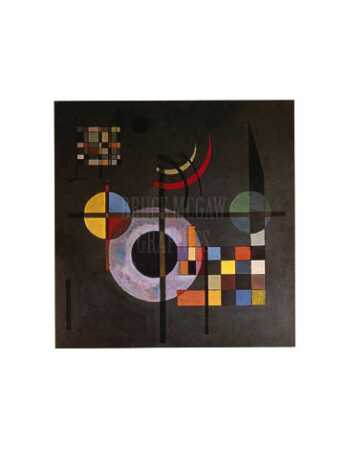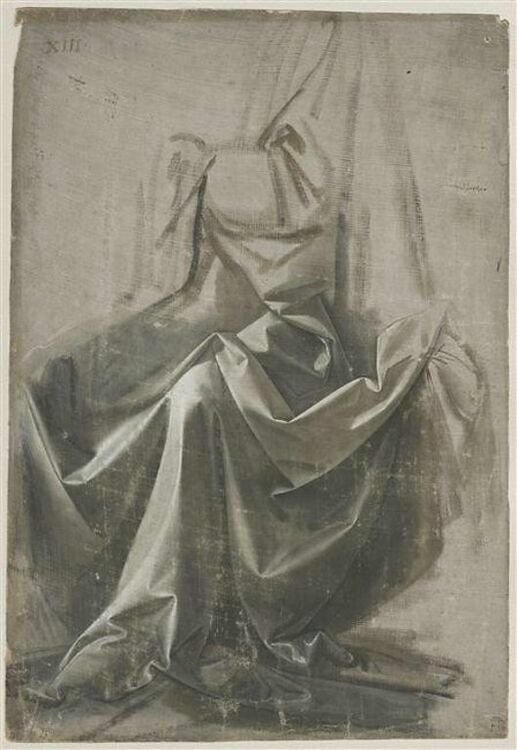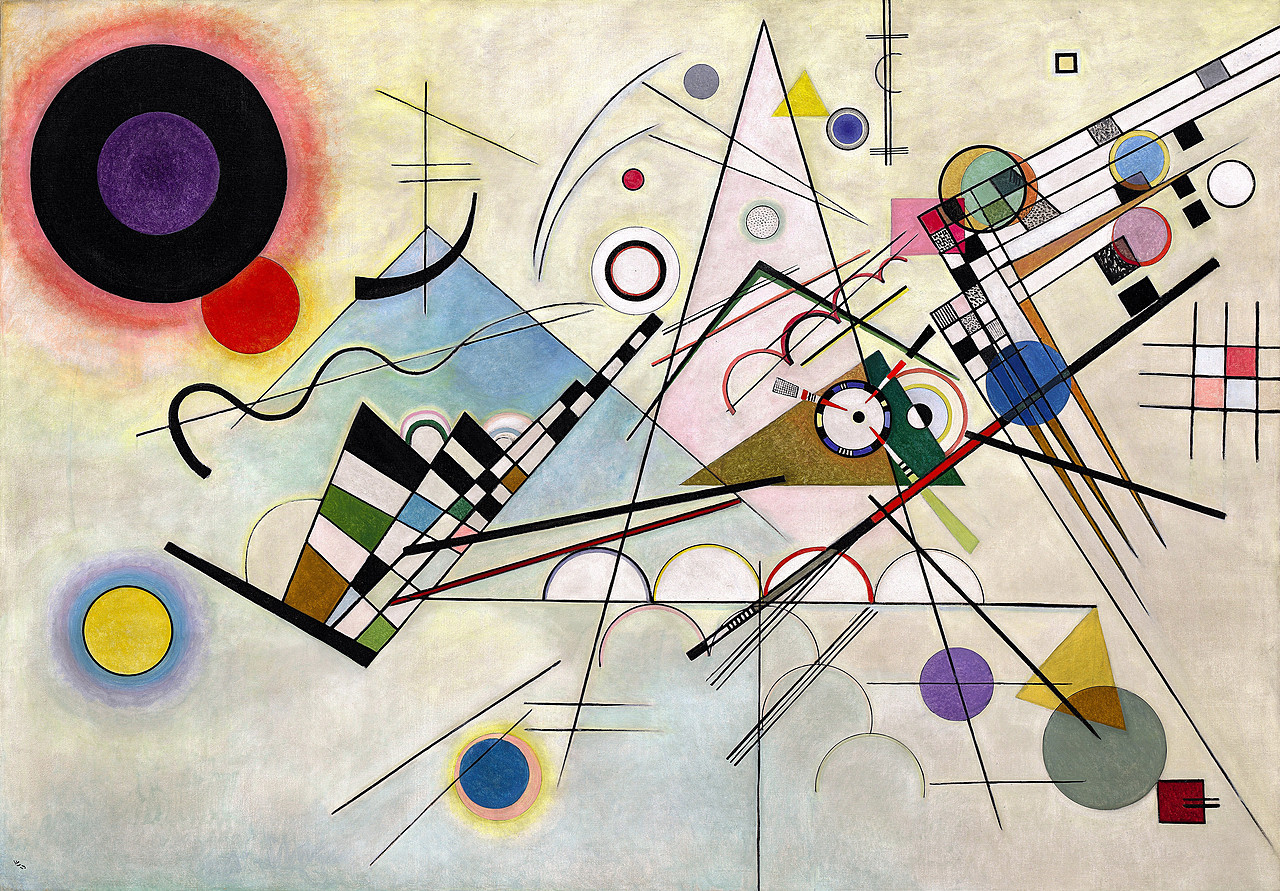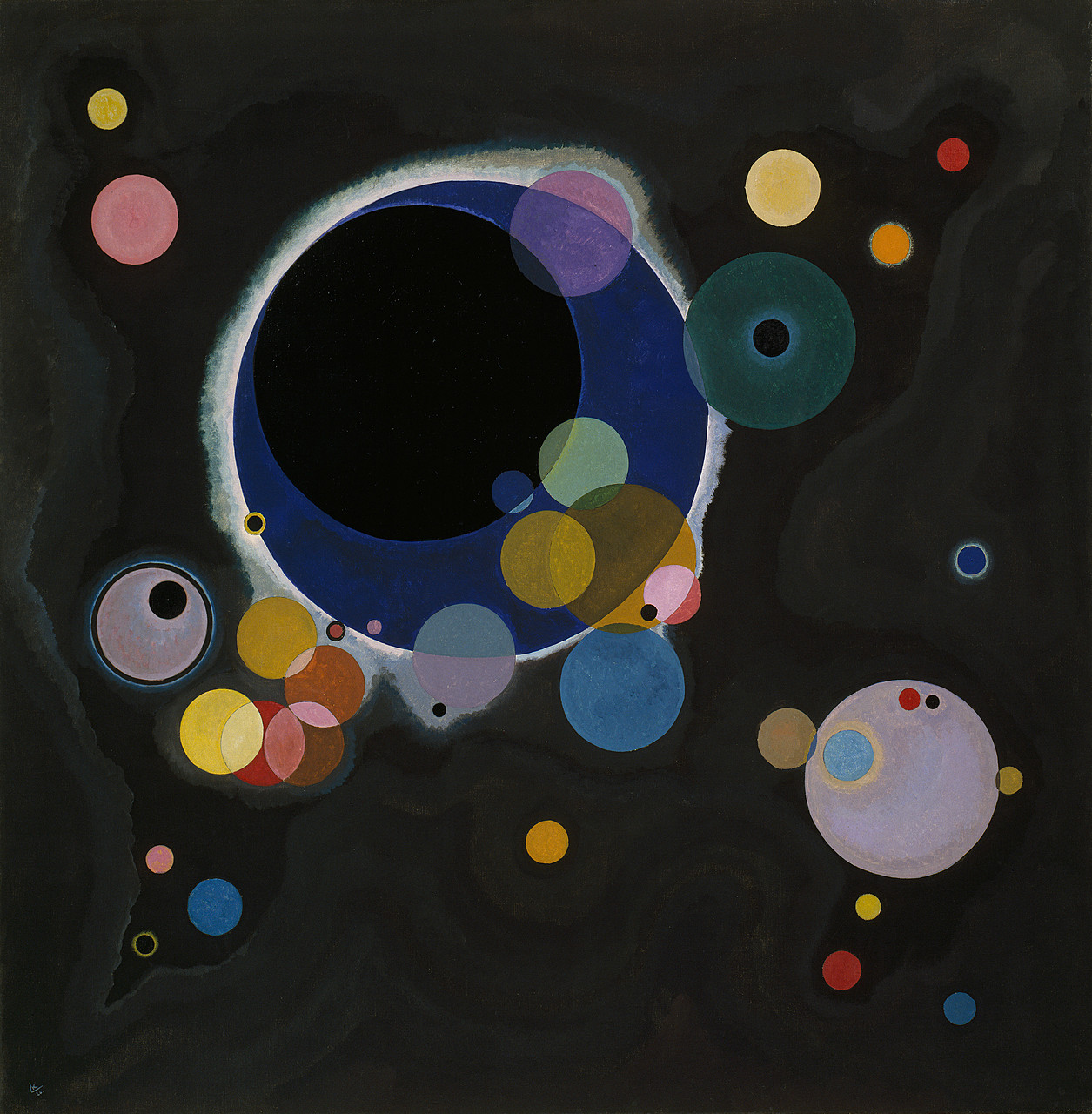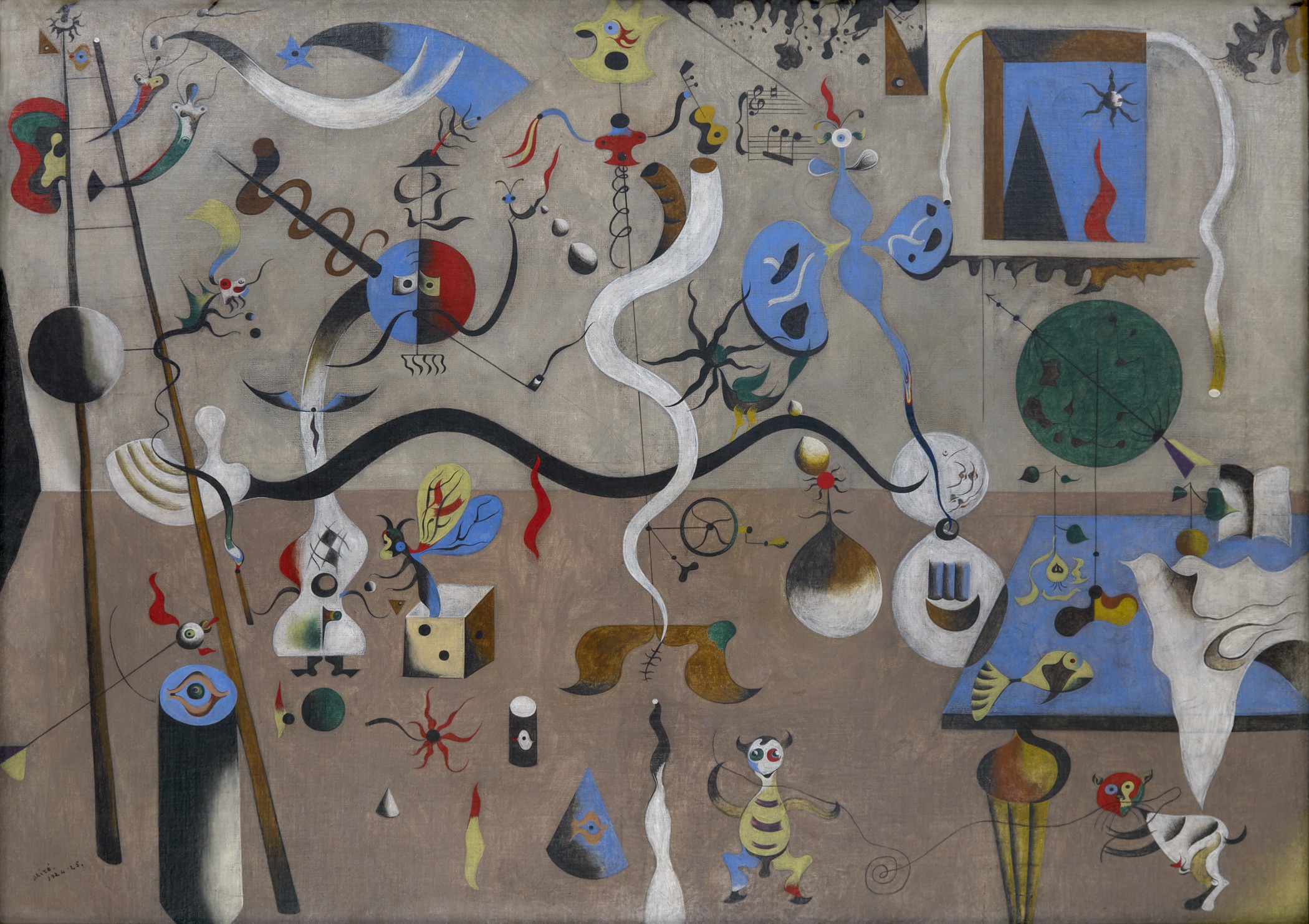822 Matching Annotations
- Last 7 days
-
www.kickstarter.com www.kickstarter.com
- Feb 2026
-
www.nytimes.com www.nytimes.com
-
Heading Upstairs With Roy Lichtenstein<br /> by [[Deborah Solomon]] in The New York Times<br /> accessed on 2026-02-05T09:42:59
-
And please note that the figures in the Schlemmer are walking up the staircase. Upward movement in art often hints at lofty belief, as in, say, Titian’s “Assumption of the Virgin” or Barnett Newman’s emphatically vertical “zips.” Downward motion, by contrast, can evoke Dada irreverence and, in particular, Marcel Duchamp’s “Nude Descending a Staircase,” the Cubist painting that created a brouhaha at the Armory Show of 1913 because neither a nude nor the alleged staircase could be located in its welter of tilting planes.
-
But a generation ago, corporations turned to art to burnish their reputations and acquire a patina of class. Art sponsorship was seen as good business, a mark of prestige, a win-win, not something that took up too much space in the lobby or was too elitist to appeal to customers.
-
Lichtenstein, a pioneer of postmodern recycling, swiped the subject of his mural from a beloved masterpiece of German painting — Oskar Schlemmer’s “Bauhaus Stairway,” of 1932, which is owned by the Museum of Modern Art. The painting depicts an actual staircase at the Bauhaus, the progressive art school that opened in Weimar, Germany, in 1919, and exemplified the modern movement at its most extroverted and techno-friendly. Artists claimed a bond with designers and engineers and set out to repair the world.


Tags
- Roy Lichtenstein
- Titian (Tiziano Vecellio)
- read
- art
- Michael Ovitz
- Bauhaus Stairway Mural (painting, 1989)
- Gagosian Gallery
- ascending
- marketing
- Bauhaus
- Oskar Schlemmer
- downward movement
- photos
- Marcel Duchamp
- art sponsorship
- XIX
- Bauhaus Stairway (painting, 1932)
- upward movement
- 1990s
- nudes
Annotators
URL
-
- Jan 2026
-
Local file Local file
-
The answer lies in our ability to use story, art and music toenhance our learning skills, and in our intense connection to thedetails within our physical environment. We can use these skills notonly to store information and increase our knowledge but also, evenmore importantly, to explore new ideas. They help us see creativesolutions to the way things are, and envisage the way they could be.
-
-
-
A favorite image that kings chose forthemselves in statues from the Early Dynastic period shows themonarch with a basket of earth for construction on his head. Hemight be a mighty ruler, but he was also a builder, erectingmonuments to his gods and taking care of his people.
-
-
www.dekudeals.com www.dekudeals.com
-
www.dekudeals.com www.dekudeals.com
-
-
en.wikipedia.org en.wikipedia.org
-
Jacob Lawrence 1917-2000, currently oeuvre overview in Kunsthal Kade Amersfoort
-
-
criticaltheoryinberlin.de criticaltheoryinberlin.de
- Dec 2025
-
monoskop.org monoskop.org
-
Art is a habit of the intellect, developed with practice overtime, that empowers the artist to make the work rightand protects him ... from deviating from what is good forthe work. It unites what he is with what his material is.It leads him to seek his own depths. Its purpose is not hisself-enhancement, his having fun or feeling good abouthimself. These are byproducts. It aims solely towards bring-ing a new thing into existence in the truest manner possible.It is about truth and, as such, has to do with ultimates and,as such 1 posits self-sacrifice and consecration
Quote from Nell Sonnemann https://www.findagrave.com/memorial/80146324/nell_battle-sonnemann no Wikipedia page it seems.
-
[[Art on My Mind by bell hooks]] visual politics, 1995.
-
-
popchart.co popchart.co
-
A Visual Compendium of Typewriters – Pop Chart<br /> accessed on 2025-12-06T20:50:36
-
- Nov 2025
-
odp.library.tamu.edu odp.library.tamu.edu
-
My soul which yearned for knowledge,
When Xantippe describes her soul as one that “yearned for knowledge,” she describes a desire that classical society discouraged in women. This yearning reflects Amy Levy’s own intellectual ambitions and her struggle to access education in a world that restricted women’s academic opportunities. Levy pushed against these limitations of her time. She became the second Jewish woman ever admitted to Cambridge University and the first Jewish woman to enroll at Newnham College, one of the women’s colleges founded to expand access to higher learning. Levy’s personal experiences with gender barriers enhance her portrayal of Xantippe’s longing. By giving a classical woman, the same thirst for intellectual life that Levy felt as a Victorian woman, the poem creates a bridge between eras. Xantippe’s desire becomes not merely personal but representative of a long history of women whose intellectual aspirations were dismissed or deemed inappropriate. Through this moment of self-revelation, Levy highlights the emotional cost of systemic exclusion and places knowledge-seeking as both a private desire and an act of resistance.
-
-
www.abc.net.au www.abc.net.au
-
Our country's 50,000-year-old encyclopedia<br /> by [[Margaret Burin]], [[Chris Lewis]] in ABC News accessed on 2025-11-11T08:50:57
via A 50,000 year old community PKMS : r/PKMS<br /> by [[WadeDRubicon]]<br /> accessed on 2025-11-11T08:50:16
-
- Oct 2025
-
typewriterdatabase.com typewriterdatabase.com
-
Most of the slugs have a number 5 stamped on them
https://typewriterdatabase.com/1926-mercedes-4.19461.typewriter<br /> "Steile Sierschrift" (Steep ornamental font) <br /> RaRo foundry mark 5 circle I<br /> paired with<br /> RaRo foundry mark 57 AR
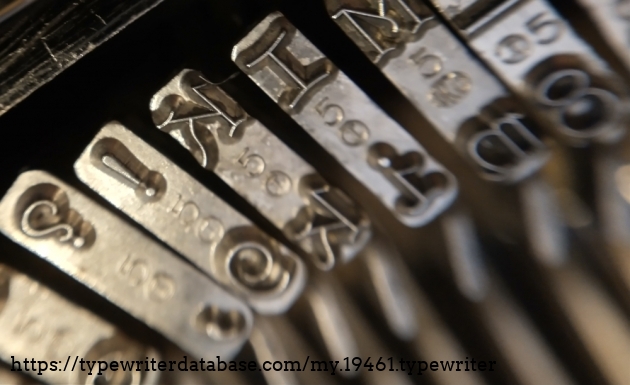
-
- Sep 2025
-
shrewdies.com shrewdies.com
-
Description
Black magic vs. white magic. Learn that black magic is a distortion of white magic's symbols and principles. Being a misuse rather than a legitimate practice.
-
-
www.ribbonsunlimited.com www.ribbonsunlimited.com
-
https://www.ribbonsunlimited.com/1-2-Replacement-Uninked-Typewriter-Ribbon-s/12848.htm
Uninked typewriter ribbon in silk, nylon, and cotton.
-
-
www.youtube.com www.youtube.com
-
Confessions of an Office Supply Junky - Episode 5: The Hipster PDA - YouTube<br /> by [[Joe Van Cleave]] video circa 2016<br /> accessed on 2025-09-15T12:38:20
Joe Van Cleave had a pencil box with index cards and a pen with which he used to keep a "Random Access Journaling System, using index cards and topical filing by subject" (dated March 2004). He was using 4 x 6" index cards.
He had a 3 x 5" hipster PDA based on Merlin Mann's idea that had thin metal covers with index cards and a book ring to hold it all together. He used colored cards to create section dividers in his hipster PDA.
He mentions the overlap of the hipster PDA with David Allen's Getting Things Done (GTD) movement.
JVC started using a hipster PDA in February 2007
He archived them in chronological order.
Grass roots use of the hipster PDA nudged larger stationers like Oxford to make vertical lined index cards specifically for hipster PDAs.
JVC also shows a storyboard done on index cards with two book rings as binding.
Renaissance Art has a 3x5" index card holder made out of leather as a wallet.
JVC was also using a bulldog clip to hold together his index cards.
-
-
shrewdies.com shrewdies.com
-
Description
A series of captivating photographs from Ioan Alexandru Herdelau's solo art exhibition. With thoughts on art appreciation in relation to trading.
-
-
shrewdies.com shrewdies.com
-
Description
David LaSpina is an American photographer living in Japan. Read about his life, interest in haiku, and Japanese culture. See his voyage from Indiana to Okazaki.
-
-
www.dekudeals.com www.dekudeals.com
-
amazing pretty for being just grayscale!
Tags
Annotators
URL
-
- Aug 2025
-
www.etsy.com www.etsy.com
-
https://www.etsy.com/listing/1505097692/antique-1921-meads-file-index-corrective<br /> Antique 1921 Mead's File Index Corrective Diets Infants Nursing Weight Charts Mead card index geared toward health of infants with details, nursing patterns, growth data, feeding data, case history, etc.
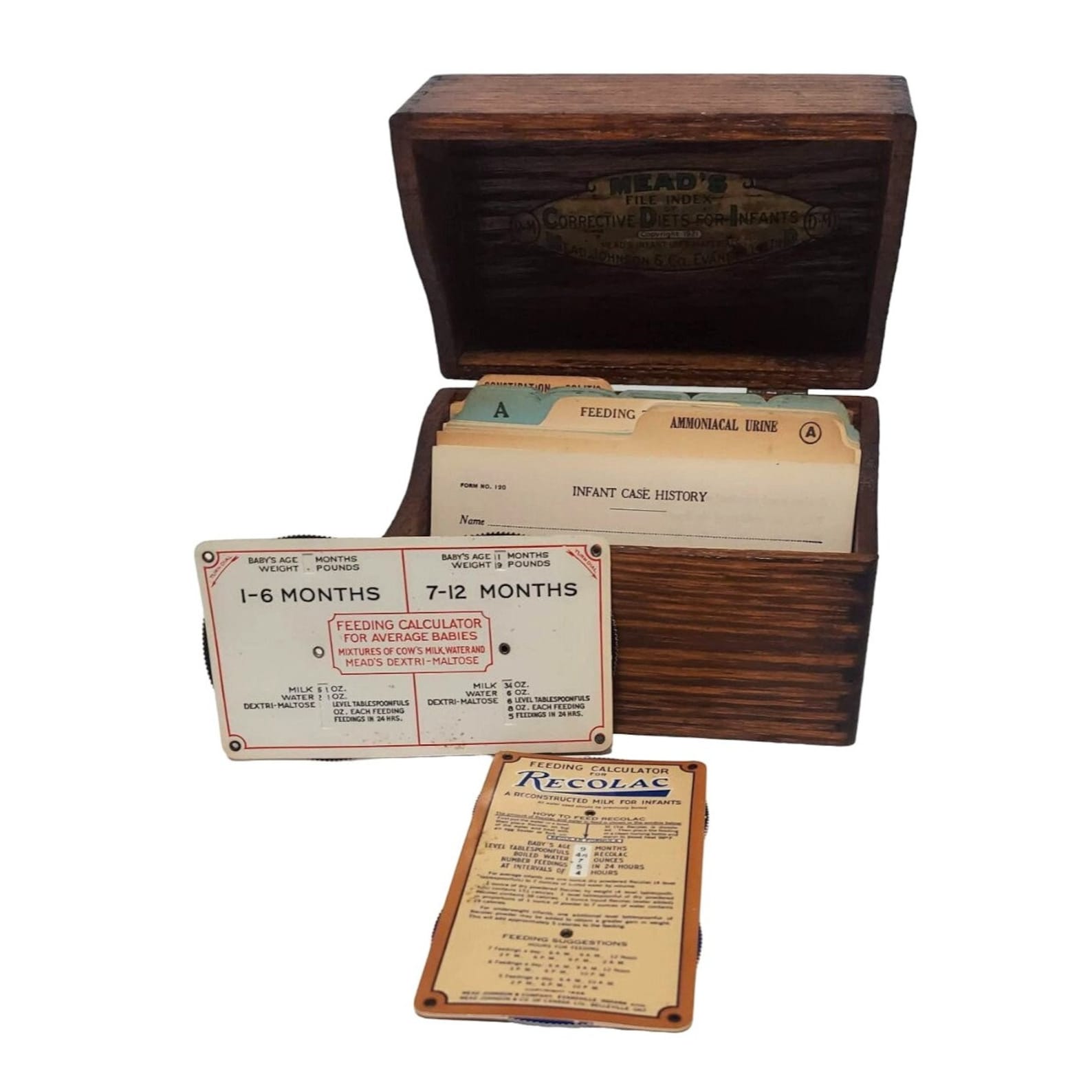
-
-
www.honest-broker.com www.honest-broker.com
-
Many creative people think these are the only options—both for them and their audience. Either they give the audience what it wants (the entertainer’s job) or else they put demands on the public (that’s where art begins).
-
-
shrewdies.com shrewdies.com
-
ART SCRIBBLE TURNS INTO AN ALIEN MINNION
Transforming a child's scribble into a whimsical alien minion through artistic reinterpretation. Learn the creative process and explore previous transformations of similar doodles. See the joy of turning simple sketches into imaginative art.
-
-
www.youtube.com www.youtube.com
-
Ray Bradbury's Rules to Writing: Don't Think!<br /> accessed on 2025-08-12T09:45:59
"...you must never think at the typewriter, you must feel." —Ray Bradbury
This also cleverly goes against the idea that "writing is thinking". Bradbury frames it as "writing is feeling" or "writing is being."
-
- Jul 2025
-
mymodernmet.com mymodernmet.com
-
Typewriter Artist Creates Meticulously Detailed Cityscapes and Portraits [Interview] by [[Emma Taggart]]
-
On average, I buy around 70 typewriter ribbons every three months. I probably use them more than anyone else on the planet. This is what I do every day, and I don’t know many people who can say the same.
-
When I started out back in 2014, I would print out artworks by Paul Smith and study them under a magnifying glass to better understand how he tackled certain subjects or material textures, be it fabrics, water, grass, reflections and along the way, I have developed my own techniques as well.
-
One drawing can take me anywhere between three to four weeks to type and contain more than 1 million individually typed letters, numbers, and punctuation marks all puzzle-pieced together.
-
Paul Smith, an American artist who lived with cerebral palsy and created extraordinary artworks using a typewriter. As a child, Paul was given a typewriter by his parents. Because of his condition, he couldn’t hold pens or pencils, and like any parent, they wanted to help him learn to write. The mechanical control of a typewriter not only allowed him to do that with precision, but also unlocked a way for him to express himself artistically.
-
Cook has been creating art with typewriters for nearly a decade. Though each piece can take weeks to complete, the prolific artist has produced over 300 works to date.
-
-
Local file Local file
-
Leon Battista Alberti, who, as artist-architect-cryptographer-philosopher-poet-athlete, was perhaps the most Renaissanceof all Renaissance men.* Forty-three years older than Pacioli, he hadworked out the mathematics that underpinned perspective some thirty yearsbefore, completing his book De Pictura (‘On Painting’) in 1435.
-
-
media.dltj.org media.dltj.org
-
Oh yeah. If you're generating text that could burn anywhere from 0.17 watt hours to 2 watt hours, equal to running this grill for about four seconds. Generating an image add 1.7 watt hours. All that, less than 10 seconds on the grill. But short videos can use far more power. In tests of various open source models, videos took anywhere between 20 watt hours and 110 watt hours. At 110 watt hours, one steamed electric grill steak, about equal to one video generation. I wouldn't eat it, but my dog would. At 220 watt hours, it was looking much more edible. So two video generations equals one pretty good looking steak.
Comparisons of text versus image versus video generation
-
-
archive.org archive.org
-
https://archive.org/details/HowToMakeTypeys/mode/2up
How To Make "Typeys" by Underwood
Tags
Annotators
URL
-
-
archive.org archive.org
-
erikwinkowski.substack.com erikwinkowski.substack.com
-
The Written Image by [[Erik Winkowski]]
-
-
www.metmuseum.org www.metmuseum.org
-
Sottsass, Ettore, and Perry King. Valentine Portable Typewriter. 1968. Acrylonitrile-butadiene-styrene (ABS) plastic, synthetic chloroprene rubber, metal, 2017.169a- typewriter: 3 7/8 × 12 3/4 × 13 1/2 in., 9.3 lb. (9.8 × 32.4 × 34.3 cm, 4.2 kg)2017.169b- cover: 4 3/8 × 13 1/2 × 13 7/8 in., 2.4 lb. (11.1 × 34.3 × 35.2 cm, 1.1 kg). https://www.metmuseum.org/art/collection/search/739409.
-
Sottsass transcended the sameness of typewriter design to give it an endearing personality. He tuned into Pop art, citing the orange nipples and pink breasts in Tom Wesselman’s nudes as inspiration for the orange scroll caps.
Photo still from A Clockwork Orange (1971) combining a Valentine and a Wesselman

-
-
www.interviewmagazine.com www.interviewmagazine.com
-
New Again: Tom Wesselmann by [[Tom Sachs]] April 20, 2016 in Interview Magazine
Previously ran in March 2006 issue of Interview
-
Wesselmann, born in Cincinnati, Ohio and trained at both the Art Academy of Cincinnati and New York’s Cooper Union, helped pioneer steel-cut sculpture and the use of molded plastic within fine art.
-
TOM SACHS: But seriously, with Wesselmann you’ve got this perfect pop-abstract representation of the female figure. You’ve got near perfect primary colors, almost like Matisse; there’s something really cartoon about Wesselmann. He also turned up, in a way, in Stanley Kubrick’s A Clockwork Orange (1971), which people are rediscovering now on DVD. There’s a lot of art in that movie—even a Wesselmann-type painting. I think that movie represents pop art better than anything.
New Again: Tom Wesselmann - Interview Magazine by [[Tom Sachs]]
-
- Jun 2025
-
www.pasadenaweekly.com www.pasadenaweekly.com
-
en.wikipedia.org en.wikipedia.org
-
www.greetingstour.com www.greetingstour.com
-
https://www.greetingstour.com/
classic large letter postcard style

-
-
www.reddit.com www.reddit.com
-
keychainproject.org keychainproject.org
-
For anyone who has lost their house or apartment, we ask that you do not discard your old keys. We are establishing drop sites to collect them, and turn those many, many keys into a tribute to the devastated communities. We feel this will be a powerful visual statement that we hope will help people move forward.Caty Maxey, volunteer
-
-
www.eileenramos.com www.eileenramos.com
-
partiful.com partiful.com
- May 2025
-
www.reddit.com www.reddit.com
-
https://www.reddit.com/r/typewriters/comments/1kunlxr/the_rules_of_typewriter_club/
Just like most areas of life relating to expertise, it's nice to have a broad set of rules when you start out. Then as your knowledge of the arts and sciences grow, you can begin to "paint outside the lines."
Once you've used, tinkered on, collected, repaired, or restored more machines than there are rules, then you can consider them more like guidelines and feel free to experiment more freely. By that point you'll have enough experience to be a true typewriter artist. ⛵🧑🎨🎨🏴☠️
-
- Apr 2025
-
thepresshotel.com thepresshotel.com
-
www.reddit.com www.reddit.com
-
I’m so excited by the wide carriage, I use my typewriter to edition prints and drawings, and I’m so excited to be able to edition larger ones now.
https://www.reddit.com/r/typewriters/comments/1k6zfvl/help_with_id_i_cant_find_anything_online/
via u/Pinkbumblebee-666
-
-
www.niceshoes.com www.niceshoes.com
-
This vision, the white of the ancient world, is a lie. Though the idea is not new to archaeologists, academics, artists, and critics, it remains unknown to the average viewer. The truth is that the ancient world was a colorful one. Polychromatic traces of black, red, green, blue, orange, and gold leaf have all been found on ancient Greek and Roman statues, meaning that the average sculpture from that period is much more likely to resemble a brightly dressed carnival attendee than a ghostly apparition. What does this mean for us today? That the association between whiteness (and its related shades of beige – a stand in for ‘neutral’), is not only culturally produced but also a fiction. It proves that no one color has an inherent quality – the meaning is in the eye of the beholder and the eye is influenced by all the things that culture is made up of like history, values, and symbols.
culture and whiteness
-
- Mar 2025
-
laughingsquid.com laughingsquid.com
-
How Mid-Century 'Emojis' Were Created on Typewriters by [[Lori Dorn]]
-
-
www.lascrucesbulletin.com www.lascrucesbulletin.com
-
Local writers host ‘typewriter revivals’ by [[Algernon D'Ammassa Las Cruces Bulletin]]
-
- Feb 2025
-
harpers.org harpers.org
-
Spotify was filling some of its popular and relaxing mood playlists—such as those for “jazz,” “chill,” and “peaceful piano” music—with cheap fake-artist offerings
well, here comes the a.i. in handy. admittingly, i welcomed this perspective in the nineties along with piratebay, napster and so on. but i had to realize, that this still is social science fiction: we have the technic but not the economy for this: under the given, we are killing our idols. luckily, we just can not use spotify and buy their albums, no?
-
-
christophermschwarz.com christophermschwarz.com
-
harpers.org harpers.org
-
 Illustration by Beppe Giacobbe
Illustration by Beppe GiacobbeHarper's Magazine, April 2022, page 26 https://harpers.org/archive/2022/04/
-
- Jan 2025
-
www.dancehousediary.com.au www.dancehousediary.com.au
-
www.journeytothegoddess.voyage www.journeytothegoddess.voyage
-
www.tate.org.uk www.tate.org.uk
-
www.viennaartweek.at www.viennaartweek.at
-
www.frontiersin.org www.frontiersin.org
-
www.journals.uchicago.edu www.journals.uchicago.edu
- Dec 2024
-
viewer.athenadocs.nl viewer.athenadocs.nl
-
"goods"
objects which can be valued in money and can therefore be subject of a commercial transaction
-
- Nov 2024
-
www.usatoday.com www.usatoday.com
-
Inspired by the discarded typewriters and the ubiquitous construction materials she saw all over Berlin, she created "Writer's Block," an art installation with rebar-caged writing implements placed in Bebelplatz, where in 1933 Nazis burned piles of books.

-
-
en.wikipedia.org en.wikipedia.org
Tags
- Émile Borel
- Arthur Eddington
- Thomas Huxley
- infinite monkey theorem
- De Natura Deorum
- Jonathan Swift
- Cicero
- statistical mechanics
- Aristotle
- dactylographic monkeys
- accidental art
- Jorge Luis Borges
- Blaise Pascal
- Mécanique Statique et Irréversibilité
- On Generation and Corruption
- R. G. Collingwood
- William Shakespeare
Annotators
URL
- Oct 2024
-
-
Adrian Poisson grew up studying science and math by day and art after hours beginning at the age of five
for - Adrian Bejan - constructal law - childhood - art and science - from - The End of Scarcity? From ‘Polycrisis’ to Planetary Phase Shift - Nafeez Ahmed - 2024, Oct 16
Summary - Good explainer video about constructal theory and flow
from - The End of Scarcity? From ‘Polycrisis’ to Planetary Phase Shift - Nafeez Ahmed - 2024, Oct 16 - https://hyp.is/Qt8IMI74Ee--f4O18QMPFQ/ageoftransformation.org/the-end-of-scarcity-from-polycrisis-to-planetary-phase-shift/
-
-
www.thecanadianencyclopedia.ca www.thecanadianencyclopedia.ca
-

Windigo Norval Morrisseau, Windigo, tempera on brown paper, ca. 1963.(courtesy Glenbow Museum/64.37.9)
via The Canadian Encyclopedia<br /> https://www.thecanadianencyclopedia.ca/en/article/windigo
-
-
catholicsaintmedals.com catholicsaintmedals.com
-
St. Francis de Sales is the patron saint of deaf individuals. He is also the patron of journalists and writers because of his many written religious works. Because of these publications, he is depicted with a book in the left hand and a quill pen in the right. His feast day is January 24th.
-
-
www.kickstarter.com www.kickstarter.com
- Sep 2024
-
www.curbed.com www.curbed.com
-
I suggest to Caro that it’s become one of those things young New Yorkers do, or at least say they do, on the path to becoming a serious adult: Get a Met membership, figure out where Film Forum is, buy (and maybe even finish) The Power Broker.
-
-
libguides.marist.edu libguides.marist.edu
-
https://libguides.marist.edu/c.php?g=1314310&p=9677364

Artwork mentioned by Robin Wall Kimmerer in Braiding Sweetgrass.
-
-
oztypewriter.blogspot.com oztypewriter.blogspot.com
-
www.jeremymayer.com www.jeremymayer.com
- Jul 2024
-
archive.org archive.org
-
https://archive.org/details/Artyping/mode/2up
Artyping by Julius Nelson , The Gregg Publishing Co., 1939
Tags
Annotators
URL
-
-
intersectionalthinking.substack.com intersectionalthinking.substack.com
-
Or as Leonardo da Vinci declared, “To develop a complete mind: Study the science of art; Study the art of science. Learn how to see. Realize that everything connects to everything else.”
-
- Jun 2024
-
plato.stanford.edu plato.stanford.edu
-
a term of art
-
-
www.theguardian.com www.theguardian.com
-
"No artist has ethical sympathies," Oscar Wilde once wrote. "An ethical sympathy in an artist is an unpardonable mannerism of style. All art is quite useless."
-
-
www.earthday.org www.earthday.org
-
To address climate change, we need to change culture.
-
- May 2024
-
media.dltj.org media.dltj.org
-
American Art Collaborative. And this was a 2017 project to take 14 art museum collections together and use these sort of linked data principles that these things were built on to say, could you bridge across 14 institutions? Could you find connections? Could you provide a unified discovery environment for that many institutions at the same time? And what came out of that was a project that is called linked art. Rob Sanderson, who I'm sure many of you know, he's a regular here and a good colleague of mine. He and I worked together to create this data model called linked art based on the data model of the American Art Collaborative, which was the underlying sort of connective data tissue, building on years and years of work in the academic community under C-Dark to say, what if we had a tool that could bridge these things together?
American Art Collaborative
-
-
docdrop.org docdrop.org
-
Résumé de la vidéo [00:00:00][^1^][1] - [00:22:11][^2^][2] :
Cette vidéo présente une conférence de Guila-Clara Kessous sur l'utilisation de l'art pour combattre le harcèlement et la violence à l'école. Elle explique les dispositifs mis en place par le ministère de l'Éducation nationale, comme les ateliers périscolaires et les projets locaux d'éducation concertée (Plec), qui permettent de mesurer des avancées dans la prévention du harcèlement. Kessous partage également son expérience personnelle et professionnelle, y compris son travail avec des victimes de traumatismes et de génocide, et souligne l'importance de l'art dramatique dans la résilience et la reconstruction post-traumatique.
Points saillants : + [00:00:00][^3^][3] L'art contre le harcèlement * Importance de l'art dans la prévention du harcèlement * Dispositifs éducatifs et ateliers artistiques * Mesure des progrès dans la lutte contre le harcèlement + [00:01:03][^4^][4] Expérience personnelle de Kessous * Utilisation de l'art dramatique pour le bien-être collectif * Travail avec des victimes de traumatismes et de génocide * Enseignement sur le théâtre et les droits humains à Harvard + [00:04:07][^5^][5] L'art dans le secteur public et privé * Coaching en communication et prise de parole * L'art comme outil de meilleure communication * Partage de temps entre artiste de l'UNESCO et coach + [00:11:00][^6^][6] Éducation artistique et culturelle * Importance de l'éducation artistique pour la démocratisation culturelle * Absence de mention du harcèlement dans les textes éducatifs * Nécessité d'intégrer la culture populaire dans l'éducation + [00:17:00][^7^][7] Initiatives concrètes * Ateliers périscolaires et pièces de théâtre pour sensibiliser au harcèlement * Théâtre forum pour un rôle catartique pendant le harcèlement * Utilisation de l'art pour la réintégration et la guérison post-harcèlement Résumé de la vidéo [00:22:13][^1^][1] - [00:41:14][^2^][2]:
Cette partie de la vidéo discute de l'utilisation du théâtre participatif pour aborder le harcèlement et la violence à l'école. L'approche consiste à rejouer des scènes de harcèlement avec la possibilité pour le public d'intervenir et de proposer des alternatives. Les résultats montrent une diminution significative des tentatives de suicide et une augmentation de la libération de la parole chez les victimes de harcèlement. La vidéo souligne également l'importance de l'art dans la guérison et la prévention du harcèlement, en mettant en avant des ouvrages et des méthodes qui favorisent la communication non violente et l'expression positive.
Points forts: + [00:22:13][^3^][3] Théâtre participatif contre le harcèlement * Utilisation de scènes de harcèlement pour encourager l'intervention du public * Permet aux victimes de harcèlement de s'exprimer et de confronter les agresseurs * Réduction des tentatives de suicide et libération de la parole + [00:25:02][^4^][4] Guérison du harcèlement par l'art * Présentation de livres et méthodes pour une communication positive * Importance de l'art pour le bien-être et la prévention du harcèlement * Exemples de livres qui abordent le harcèlement de manière constructive + [00:33:00][^5^][5] Art et santé globale * Discussion sur l'approche de la santé globale qui inclut l'art thérapie * Exemples d'initiatives internationales intégrant l'art dans le soin * Témoignages sur l'impact positif de l'art sur la santé et le bien-être
-
-
docdrop.org docdrop.org
-
l'exposition à l'art a été démontrée comme entraînant le raisonnement cette cette cette 01:09:21 résistance à l'automatisme l' abstrait parce que justement l'art abstrait euh c'est un art qui porte plusieurs interprétations mais a je peux vous citer plusieurs dispositifs qui permettent le développement de la 01:09:34 capacité à assumer l'incertitude par exemple parler plusieurs langues c'est simple ça veut dire bah ça ça peut s'appeler de 50000 façons différentes selon les langues déjà ça apprend une flexibilité mentale euh il y a donc 01:09:46 l'exposition à l'abstrait moi je moi je pense voilà vous voyez ici que euh notre tolérance à l'ambigué la tolérance à l'ambiguïé qu'à l'enfant devant ce qu'il ne comprend pas tout à 01:09:59 fait diminue pardon augmente avec l'expérience de l'art et avec la pratique de l'art donc ça c'est je vous dis ce qui a été fait comme étude l'art on a 01:10:12 les différentes langues voilà la poésie ça ça développe cette capacité àcher l'incertitude
-
-
images.google.com images.google.com
-
Author Vladimir Nabokov's doodlings.Location:Ithaca, NY, USDate taken:September 1958Photographer:Carl Mydans
-
-
www.khanacademy.org www.khanacademy.org
-
There is no doubt that humans are an artistic species. We make music, television shows, and movies, plus we paint, draw, and sculpt. All of these things are art. Humans are able to think in the abstract. We imagine and create things that do not exist, such as unicorns, monsters, and superheroes. We also build upon the achievements of earlier periods to make art that is grounded in history but is also new.
Human beings are naturally creative. We sing and use instruments, act out scenes, draw, paint, and express ourselves in unique ways that we may not even recognize as art. We use our imagination to portray fictional places and people, combine images to create a whole new composite image. We also admire or engage in some way with the art of others, past and present.
-
-
oztypewriter.blogspot.com oztypewriter.blogspot.com
-
Vale Paul Auster (1947-2024) by [[Robert Messenger]]
-
-
www.linkedin.com www.linkedin.com
-
youth in city spaces. Capetonians i
for - contact - local contact - Cape Town - art and transition
-
-
docdrop.org docdrop.org
-
theworksprescribed in earlier years were much easier and written as lead sheets rather than detailed notations for both hands, which gave the performers the opportunity to rely more on their improvisational and arrangement skills rather than their reading skills to successfullyinterpret the works.
-
Articulation specifications such as the staccatomarkings in Ballad for Thomas(Example 2.2.2) and sempre legato in Two Studies for Piano(Example 2.2.3). •Scale patterns in the left hand in Example 2.2.1 bar 30 and Example 2.2.3 bar 2-4 in Two Studies for Piano. •The similarity of sudden change in time signature, which can be found throughoutAfrican Funk for Felix, Ballad for Thomas and Lutoslawski’s Two Studies forPiano.
-
Reddy use Western art music notation devices similar to those used by Lutoslawski in Two Studies for Piano no.1(Example 2.2.3):•There are detailed dynamic markings in both Ballad for Thomas and Lutoslawski’s Two Studies for Piano, although African Funk for Felix does not have any dynamic markings. It is important to note that Reddy states in the preface to Ballad for Thomasthat the dynamic markings are a mere suggestion (Reddy 2005c).•The use of Italian expressions, for example crescendoin Ballad for Thomas (Example 2.2.2) and sempre legatoin Two Studies for Piano(Example 2.2.3).
-
-
www.lex24.ro www.lex24.ro
-
LIBERTATEA DE A CONTRACTA
comment
-
- Apr 2024
-
-
when we go to school, it's to get us to follow the rules. And in art, it's different, because the rules are there as a scaffolding to be chipped away
for - quote - art vs non-art - Rick Ruben
quote - art vs non-art - (see below)
- When we go to school, it's to get us to follow the rules.
- And in art, it's different,
- because the rules are there as a scaffolding to be chipped away
comment - To produce unique art, we are after something unique and different - not more of the same
Tags
Annotators
URL
-
-
en.wikipedia.org en.wikipedia.org
-
web.archive.org web.archive.org
-
If people have no awareness of history, and society suffers because of it, they also have no awareness of art history. So no awareness of cabaret history either. Werner Schneyder
Werber Schneyder on Cabaret, art and history.
German-German history as reflected in political cabaret': ridiculed separately and laughed together. Cover poster: Klaus Staeck. The poster texts are accompanied by text panels. A version in Polish is available.
-
-
picturinghistory.gc.cuny.edu picturinghistory.gc.cuny.edu
-
John Gast, American Progress, 1872<br /> https://picturinghistory.gc.cuny.edu/john-gast-american-progress-1872/
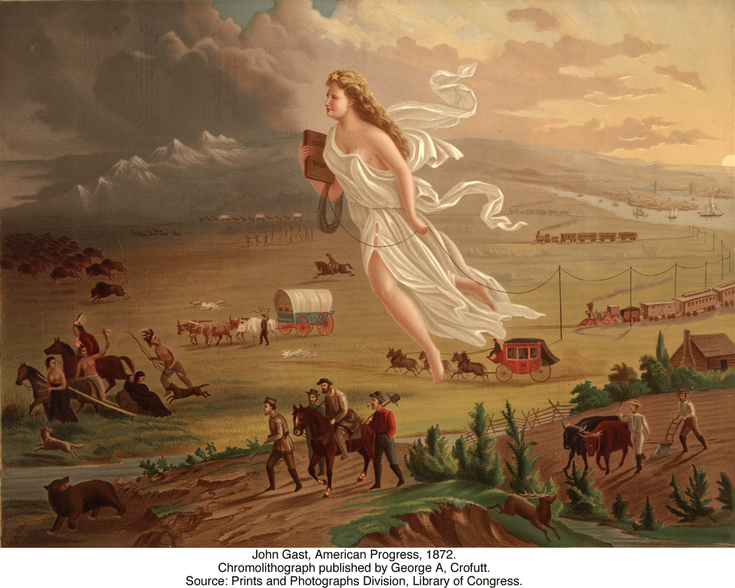
-
-
www.woman-of-letters.com www.woman-of-letters.com
-
Great Books tend to arise in the presence of great audiences. by [[Naomi Kanakia]]
Kanakia looks at what may have made 19th C. Russian literature great. This has potential pieces to say about how other cultures had higher than usual rates of creativity in art, literature, etc.
What commonalities did these sorts of societies have? Were they all similar or were there broad ranges of multiple factors which genetically created these sorts of great outputs?
Could it have been just statistical anomaly?
-
- Feb 2024
-
www.youtube.com www.youtube.com
-
https://www.youtube.com/watch?v=hWVrz5oCt2w<br /> The meaning of Hand Gestures in Art History<br /> Amuze Art Lectures
Middle and ring fingers together to represent modesty. (He doesn't say it, but it also could stand for "M" as in Medici??)
Finger pointing at viewer may indicate a self portrait.
Woman's hand on abdomen may represent pregnancy, a fertile marriage, or the desire to bear children.
-
-
www.zuerich.com www.zuerich.com
-
We strolled through the square at Spiegelgasse this Tuesday, visiting a pop-up gallery of the graduation projects of several students at https://www.zhdk.ch/ the ZH art academy. Turns out this place has history! It is where Dada started (and Lenin lived next door at the time!).
Tags
Annotators
URL
-
-
Local file Local file
-
SUNY Brockport’s Drake Memorial Library greets its userswith a typographically generated image of a card catalog:Your automated catalog, by DYNIX.Copyright (c) 1992 by DYNIX, Incorporated.
A library card catalog drawn using ASCII art. :)
-
And some undetermined but large fraction of thetotality is being sent to an artist named Thomas Johnston, atWestern Washington University.
Card catalog cards being repurposed for art.
-
-
www.lapl.org www.lapl.org
-
The delight-inducing art piece, A Place for Everything and Everything in its Place, is featured in the two elevator cars on the north side of the building, accessible in the Tom Bradley Wing.One car has cards for the "Comprehensive" and the other for the "Complete" works of various authors and topics. When moving, the elevator cars expose cards in the shaft window that reflect books that are found on the floor the elevator is passing.Artist David Bunn was given nearly 2 million catalog cards to play with for his art installation, yet he only used a little more than 9,500 in the two elevator cars. He has, since the early 1990s, been creating art projects, found poetry, and sculptures with the remaining cards.
-
-
Local file Local file
-
The bad reader is lost amonggood books. He lacks the highest pleasure available to man,according to Mrs. Woolf. If she is right, none but a fool would refuseto learn to read as well as he can.
-
-
docdrop.org docdrop.org
-
y at il une place pour le thérapeutique dans l'éducatif par rapport à ses enfants à comportement perturbateur notre âme en notamment à travers l'art de thérapie à l'école
Tags
Annotators
URL
-
- Jan 2024
-
spectrum.ieee.org spectrum.ieee.org
-
After a bit of experimentation (and in a discovery that led us to collaborate), Southen found that it was in fact easy to generate many plagiaristic outputs, with brief prompts related to commercial films (prompts are shown).
Plagiaristic outputs from blockbuster films in Midjourney v6
Was the LLM trained on copyrighted material?
-
- Dec 2023
-
-
Wish You Were Here - The “Great Lakes” Edition from Field Notes Brand https://www.youtube.com/watch?v=fFemm4LjJbY
The Newberry Library in Chicago, IL, maintains a collection of the Curt Teich & Co.'s Art-Colortone postcards from 1898 onward. It's stored in tab divided boxes using an alpha-numeric system generally comprising a series of three letters followed by three numbers. The company sold over a billion of these postcards.
-
-
-
I think there are opportunities for for 01:13:03 um reaching people in new ways emotionally powerful ways across those three emotional temperaments that we haven't exploited and I think people like James Cameron have an intuition for that they haven't either hadn't exploited yet
- for: adjacency art - leverage point - idling resource
-: adjacency between - art - leverage point - idling resource - adjacency statement - art is a powerful leverage point that is, unfortunately still an idling resource
-
could art in the very general sense 01:10:39 story et cetera be used as one of those tools it's a great question and the answer is absolutely
- for: leverage points - art
-
-
www.theguardian.com www.theguardian.com
-
20 min 'documentary' about what AI does to artists, made with AI by an artist. ODI commissioned it. Does this type of thing actually help any debate? Does it raise questions more forcefully? I doubt it, more likely reinforcing anyone's pre-existing notions. More a curiosum, then.
-
- Nov 2023
-
www.centrepompidou.fr www.centrepompidou.fr
Tags
Annotators
URL
-
-
docdrop.org docdrop.org
-
there's things in the 10th Century in what we think of as now as broadly Western and Central Europe 01:13:46 that are beginning to show up particularly in art and architecture and poetry and music not an accident the musician we know that artists are often people who sense 01:13:59 things and are ahead of a culture they give the first articulation to a set of ideas and so if you today if next time you're in Ottawa I invite you to go to the 01:14:10 National Gallery because the National Gallery in Ottawa has one of the world's best collections of European northern European art and it starts about 1300 01:14:22 there's some before that but their collections of that's old enough to get you into it and it works through historically as you work through the rooms and at least it used to last time I brought it was there it brought you 01:14:36 out into a post-modern into postmodern art as if what's beyond what we think of as Modern Art uh into post-modern art
- for: BEing journey - history of art from 10th century to present
-
-
pnote.eu pnote.eu
Tags
Annotators
URL
-
-
www.alternet.org www.alternet.org
-
“This is the science that concerns itself with plants in their local association in the various climates. This science, as vast as its object, paints with a broad brush the immense space occupied by plants, from the regions of perpetual snows to the bottom of the ocean, and into the very interior of the earth, where there subsist in obscure caves some cryptogams that are as little known as the insects feeding upon them.”
—Alexander von Humboldt, 1807 “Essay on the Geography of Plants”
Cave paintings/art were known of in Humboldt's time certainly if he's using them to analogize.
-
- Oct 2023
-
www.nytimes.com www.nytimes.com
-
The art of the biblical narrative, Alter hypothesized, was finalized in a late editorial stage by some unifying creative mind — a figure who, like a film editor, introduced narrative coherence through the art of montage. Alter called this method “composite artistry,” and he would also come to use the term “the Arranger” — a concept borrowed from scholarship on James Joyce — to describe the editor (or editors) who gave the text a final artistic overlay. It was a secular and literary method of reading the Hebrew Bible but, in its reverent insistence on the coherence and complex artistry of the central texts, it has appealed to some religious readers.
-
-
library.scholarcy.com library.scholarcy.com
-
In Beijing and Shanghai, new art complexes have been built following European and American standards, showing that they are considered global standards
-
"curiosities," which had historical significance as unique and unclassifiable objects.
exoticism
-
British army had specific procedures for legalizing plunder
-
Plunder was seen as a natural part of war, and it was managed by categorizing it as "prize"
-
no laws
-
evelopment of a field of art history on China. The objects had various meanings, representing the British army, the humiliation of the Chinese emperor, and the global discourse on non-European curiosities. The sell-off of imperial art in East Asia was influenced by war and revolution. Recently, mainland Chinese companies intervened to repatriate some of the plundered objects.
-
-
www.ebay.com www.ebay.com
-
Listed in late summer/early fall 2023.
Art Metal Company card catalog (drawer sizes maybe 6x9" index cards? with 32 3/4 W x 38 3/4" H x 18 1/2" D). Possibly sectional with top and short leg sections, two sections of 3x2 drawers and a storage section with two doors. Nice patina.
Listed originally at $1,200 and put on sale in early October 2023 for $960. Local pick up in Savannah, GA.

Cost per drawer: $85.71 ($68.57 on sale)
-
-
en.wikipedia.org en.wikipedia.org
-
ia600505.us.archive.org ia600505.us.archive.org
-
Plex is my very life - and has been all along, I suspect. From a creative and in-quisitive childhood, sampling all the arts, crafts, and sciences, through a strongliberal-arts background, to pure mathematics and electrical engineering - I foundmyself swept into the very exciting dawn of the computer age in my first graduate-student summer job, in 1952. Just as my marriage to Pat in the January breakof my senior year at Oberlin had been the perfect choice, my change to part-timeSpecial Student status, while embarking on my full-time professional career atMIT, can be seen as inevitable, when viewed from today's vantage point. Thereis an exquisite economy in the doings of nature, and for a long time, now, I havebeen firmly convinced that, whoever I may really be, my role in the scheme ofthings has been to initiate the discovery of Plex, not by chance, but as what Ido, simply because I'm me
I can see him struggling with this concept at this point I dont think we had greb the concept of arts as not something you do but a part of expressing what you have to say
There are many techinical people that are into arts and we think of that as an oddity but art is technology
-
-
delong.typepad.com delong.typepad.com
-
You have not graspeda complex unity if all you know about it is how it is one. Youmust also know how it is many, not a many that consists of alot of separate things, but an organized many. If the partswere not organically related, the whole that they composedwould not be one. Strictly speaking, there would be no wholeat all but merely a collection.
This is also an art of putting notes together to make an article or book.
-
The rules of such learningconstitute the art of unaided discovery.
There always seems to be a duality of "rules" and "art" I see in almost every representation of the idea of art.
Thesis: To practice an art, there are always rules which one is following. Often the rules may be unwritten or hidden, but they are being followed on some level.
Is there art which doesn't have any rules?
-
-
-
-
for: Indyweb, unenclosable carriers, future - of communication, Art Brock, Arthur Brock, Holochain
-
summary
- Art Brock demystifies Holochain by discussion unenclosable carriers, the essence of Holochain.
- Art provides an excellent, lay-person-friendly explanation of unencloseable carriers that helps contextualize
- just how critical unencloseable carriers are to a healthy society
- just how far away we are, even including blockchains, from a healthy society
- this is the first of a series of 3 articles. The second article discusses how unenclosable carriers benefit major provisioning systems such as
- food system
- energy system
- planetary health
-
-
-
www.wikiart.org www.wikiart.org
Tags
Annotators
URL
-
-
www.nortonsimon.org www.nortonsimon.org
Tags
Annotators
URL
-
- Sep 2023
-
www.gardnercampbell.net www.gardnercampbell.net
-
Art is the hook that engages students…. The subjects are familiar so that students have much to recognize but they also contain elements of mystery so students have observations, ideas, and emotions to puzzle over [my emphasis]. (p. 24)
Right, so the modern equivalent would be to design a game or an 3d animation in an intuitive way, yet the integration of pipeline in this systems makes it so that not even experienced professionals in the area cn develop a short film or an interactive experience through art that eases people into coding.
I think we need to do a better job at this. If the system that allowed us to design the processes also taught it to people then we wouldn't have to chose between improving the learning curve and the system there should all be one. why did we stop shipping manuals with our tech..? ahh it was because we stopped caring about what the people that designed the tool thought.
-
-
en.wikipedia.org en.wikipedia.org
-
This is so fascinating I wonder if we could hide modern messages like this.
-
- Aug 2023
-
collections.si.edu collections.si.edu
-
https://collections.si.edu/search/record/edanmdm:nmah_1218385
Phyllis Diller's gag file appears to have been made of 16 standard three-drawer beige Steelmaster (Art Steel Company, Inc.) index card files which were stacked in two columns and enclosed in a matching beige external frame which was mounted on casters. Having overflowed the 48 available drawers, there was an additional 3-drawer file added on top as an expansion.
The Smithsonian dates the files from 1962 to 1994, but perhaps the digitized version can be searched by date to determine the actual earliest and latest dates on included cards as most had at least a month and a year.
-
-
pluralthey.tumblr.com pluralthey.tumblr.com
-
the goat
-
-
highlightpoetry.com highlightpoetry.com
-
bonpote.com bonpote.com
-
Adam Philips’ expression, “if the art legitimates cruelty, I think the art is not worth having.”
for: quote, art, quote - art, Adam Philips - quote - if the art legitimates cruelty, I think the art is not worth having. - author - Adam Philips
-
-
www.yesmagazine.org www.yesmagazine.org
-
- for: art and healing, climate anxiety, eco-anxiety, TPF
-
-
www.youtube.com www.youtube.com
-
we've actually initiated a pilot study to look to see whether we could use art-induced awe to facilitate toleration. 00:12:55 And the results are actually incredibly positive. We can mitigate against anger and hate through the experience of awe generated by art.
- for: art for healing, art for conflict resolution
-
-
www.dustjackets.com www.dustjackets.com
- Jul 2023
-
arxiv.org arxiv.org
-
In traditional artforms characterized by direct manipulation [32]of a material (e.g., painting, tattoo, or sculpture), the creator has a direct hand in creating thefinal output, and therefore it is relatively straightforward to identify the creator’s intentions andstyle in the output. Indeed, previous research has shown the relative importance of “intentionguessing” in the artistic viewing experience [33, 34], as well as the increased creative valueafforded to an artwork if elements of the human process (e.g., brushstrokes) are visible [35].However, generative techniques have strong aesthetics themselves [36]; for instance, it hasbecome apparent that certain generative tools are built to be as “realistic” as possible, resultingin a hyperrealistic aesthetic style. As these aesthetics propagate through visual culture, it can bedifficult for a casual viewer to identify the creator’s intention and individuality within the out-puts. Indeed, some creators have spoken about the challenges of getting generative AI modelsto produce images in new, different, or unique aesthetic styles [36, 37].
Traditional artforms (direct manipulation) versus AI (tools have a built-in aesthetic)
Some authors speak of having to wrestle control of the AI output from its trained style, making it challenging to create unique aesthetic styles. The artist indirectly influences the output by selecting training data and manipulating prompts.
As use of the technology becomes more diverse—as consumer photography did over the last century, the authors point out—how will biases and decisions by the owners of the AI tools influence what creators are able to make?
To a limited extent, this is already happening in photography. The smartphones are running algorithms on image sensor data to construct the picture. This is the source of controversy; see Why Dark and Light is Complicated in Photographs | Aaron Hertzmann’s blog and Putting Google Pixel's Real Tone to the test against other phone cameras - The Washington Post.
Tags
Annotators
URL
-
-
en.wikipedia.org en.wikipedia.org
-
Interstellar was particularly praised for its scientific accuracy, which led to the publication of two academic papers.[118][119] The American Journal of Physics called for it to be shown in school science lessons.
-
-
www.youtube.com www.youtube.com
-
- knowing how to suffer, allows you to suffer less, having understanding and compassion (see my idea on madness, understanding it, knowing how to be mad)
- we always run away from suffering (like avoiding to face the dragon)
- using technology, like tv, to run away from suffering (see my idea on media controlling attention), also other coping like eating etc.
- embrace and face suffering (facing the dragon), understanding will arise, you become compassionate (that will heal you), because you understand that other people suffer (see idea on not having enemies, understanding others, looking not only at yourself, but others)
- (see above) now you want to help others
- practice of looking into one owns suffering, and then looking at others suffering (thinking of self, then others, see idea)
Tags
Annotators
URL
-
-
www.reddit.com www.reddit.com
-
Is there any app like Obsidian for visual (art) research?
reply to u/gate18 at https://www.reddit.com/r/ObsidianMD/comments/14ve4gi/is_there_any_app_like_obsidian_for_visual_art/
Aby Warburg had a significant physical card-based zettelkasten he used for his visual research in the early 1900s. Perhaps you'd find some interesting inspiration by looking at his methods?
-
-
www.newyorker.com www.newyorker.com
-
To compare the Garnett and the Pevear-Volokhonsky translations of “The Brothers Karamazov” is to alight on hundreds of subtle differences in tone, word choice, word order, and rhythm.“These changes seem small, but they are essential. They accumulate,” Pevear said. “It’s like a musical composition and a musician, an interpretation. If your fingers are too heavy or too light, the piece can be distorted.”“It can also be compared to restoring a painting,” Volokhonsky said. “You can’t overdo it, but you have to be true to the thing.”
-
- Jun 2023
-
www.youtube.com www.youtube.com
-
How to learn the art of memory (quick)
Tags
Annotators
URL
-
-
www.parisparvu.com www.parisparvu.com
Tags
Annotators
URL
-
-
-
There are many things that we have to take on trust; everyminute of every day we have to accept the testimony and the guidance of thosewho are in a position to offer an authoritative view.
Perhaps there is a need for balance between the two perspectives of formal and progressive education. While one can teach another the broad strokes of the "rules" of note taking, for example, using the zettelkasten method and even give examples of the good and the bad, the affordances, and tricks, individuals are still going to need to try things out to see what works for them in various situations and for their specific needs. In the end, its nice to have someone hand one the broad "rules" (and importantly the reasons for them), so that one has a set of tools which they can then practice as an art.
-
-
quaidelaphoto.fr quaidelaphoto.fr
Tags
Annotators
URL
-
-
learn-us-east-1-prod-fleet01-xythos.content.blackboardcdn.com learn-us-east-1-prod-fleet01-xythos.content.blackboardcdn.com
-
It certainly would have by now,were it not for the multitude of volunteer sheriffs of the information highway who ride aroundpatrolling the thing day and night.
This piqued my interest because I wonder how there are so many volunteers on Wikipedia. It raises questions like, why are they willingly patrolling the site and making sure there is no vandalism or inaccurate information? What is in it for them? Since it says volunteers I assume there are so rewards for these people so is it just good morals or boredom? I attached a picture of a chart showing the increase in editors after COVID. I think during COVID many people were bored so they decided to take on volunteering on Wikipedia and afterwards maybe it became a hobby.
Tags
Annotators
URL
-
-
remikalir.com remikalir.com
-
Second, the social life of annotation is of greater importance than individual reader response. Annotation must be studied and promoted as a social endeavor that is co-authored by groups of annotators, with interactive media, spanning on-the-ground and online settings, and in response to shared commitments.
When will we get the civil disobedience version of Mortimer J. Adler's How to Mark a Book?
-
-
artblakey.bandcamp.com artblakey.bandcamp.com
-
reifmyersartist.com reifmyersartist.com
-
-
www.les-frigos.fr www.les-frigos.fr
-
-
www.shlaglab.com www.shlaglab.com
Tags
Annotators
URL
-
- May 2023
-
www.tate.org.uk www.tate.org.uk
-
www.ebay.com www.ebay.com
-
github.com github.com
-
pro.europeana.eu pro.europeana.eu
Tags
Annotators
URL
-
-
europeana.atlassian.net europeana.atlassian.net
-
pro.europeana.eu pro.europeana.eu
-
github.com github.com
Tags
Annotators
URL
-
-
s3.amazonaws.com s3.amazonaws.com
Tags
Annotators
URL
-
-
www.loc.gov www.loc.gov
-
www.wikidata.org www.wikidata.org
Tags
Annotators
URL
-
-
www.sciencedirect.com www.sciencedirect.com
-
www.bobdornberger.com www.bobdornberger.com
-
www.wikiart.org www.wikiart.org
Tags
Annotators
URL
-
-
www.guggenheim.org www.guggenheim.org
-
-
www.wikiart.org www.wikiart.org
Tags
Annotators
URL
-
-
www.atelier-lumieres.com www.atelier-lumieres.com
Tags
Annotators
URL
-
-
-
sparql SELECT ?type (COUNT(DISTINCT ?oeuvre) AS ?c) WHERE { VALUES ?type { wd:Q838948 } ?oeuvre wdt:P31 ?type. { ?oeuvre ?link ?museum. } union { ?museum ?link ?oeuvre. } ?museum wdt:P31 wd:Q33506. } GROUP BY ?type ORDER BY DESC (?c)
-
-
-
sparql SELECT ?type (COUNT(DISTINCT ?oeuvre) AS ?c) WHERE { VALUES ?type { <http://schema.org/CreativeWork> <http://schema.org/Painting> <http://dbpedia.org/ontology/Artwork> <http://dbpedia.org/ontology/Painting> } ?oeuvre a ?type . } GROUP BY ?type ORDER BY desc(?c)
-
-
-
-
www.getty.edu www.getty.edu
-
schema.org schema.org
Tags
Annotators
URL
-
-
schema.org schema.org
Tags
Annotators
URL
-
-
schema.org schema.org
-
```html
<div vocab="https://schema.org/" typeof="VisualArtwork"> <link property="sameAs" href="http://rdf.freebase.com/rdf/m.0439_q" />La trahison des images
A <span property="artform">painting</span> also known as <span>The Treason of Images</span> or <span property="alternateName">The Treachery of Images</span>.
 <div property="description">
<div property="description">
The painting shows a pipe. Below it, Magritte painted, <q lang="fr">Ceci n'est pas une pipe.</q>, French for "This is not a pipe."
His statement is taken to mean that the painting itself is not a pipe. The painting is merely an image of a pipe. Hence, the description, "this is not a pipe."
Similarly, the image shown above is neither a pipe nor even a painting, but rather a digital photograph.
The painting is sometimes given as an example of meta message conveyed by paralanguage. Compare with Korzybski's <q>The word is not the thing</q> and <q>The map is not the territory</q>. </div>
- Artist: <span property="creator" typeof="Person"> <span property="name">René Magritte</span> </span>
- Dimensions: <span property="width" typeof="Distance">940 mm</span> × <span property="height" typeof="Distance">635 mm</span>
- Materials: <span property="artMedium">oil</span> on <span property="artworkSurface">canvas</span>
```
```html
<div vocab="https://schema.org/" typeof="VisualArtwork"> <link property="sameAs" href="http://rdf.freebase.com/rdf/m.0dbwsn" />My Bed
My Bed, first created in <time property="dateCreated" datetime="1998">1998</time>, is an <span property="artform">installation</span> by the British artist Tracey Emin.
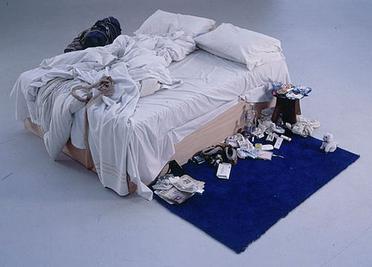 <div property="description">
<div property="description">
<cite>My Bed</cite> was exhibited at the Tate Gallery in <time datetime="1998">1999</time> as one of the shortlisted works for the Turner Prize. It consisted of her bed with bedroom objects in an abject state, and gained much media attention. Although it did not win the prize, its notoriety has persisted. </div>
- Artist: <span property="creator" typeof="Person"> <span property="name">Tracey Emin</span> </span>
The artwork generated considerable media furore, particularly over the fact that the <span property="artMedium">bedsheets</span> were stained with bodily secretions and the floor had items from the artist's room (such as <span property="artMedium">condoms</span>, <span property="artMedium">a pair of knickers</span> with menstrual period stains, other detritus, and functional, everyday objects, including a <span property="artMedium">pair of slippers</span>). The <span property="artMedium">bed</span> was presented in the state that Emin claimed it had been when she said she had not got up from it for several days due to suicidal depression brought on by relationship difficulties.
</div>```
```html
<div vocab="https://schema.org/" typeof="VisualArtwork"> <link property="sameAs" href="http://www.pada.net/members/memPicFull.php/38/367" />Still Life under the Lamp
<span property="artform">Print</span> from <time property="dateCreated" datetime="1962">1962</time> by Pablo Picasso. Numbered from the edition of <span property="artEdition">50</span>, each signed by the artist in pencil, lower right: Picasso.
 <div property="description">
<div property="description">
<cite>Still Life under the Lamp</cite>, from 1962, made when the artist was eighty years old, are counted among Picasso’s most important works in linocut, a technique that he explored in the late 1950s and early 1960s. The progressive proofs show the step by step sequence by which Picasso created his linocut images showing the development of the image into its final form.
</div>- Artist: <span property="creator" typeof="Person"> <span property="name">Pablo Picasso</span> </span>
- Dimensions: <span property="width" typeof="Distance">25 3/16 inches</span> × <span property="height" typeof="Distance">20 3/4 inches</span>
- Materials: <span property="artMedium">linoprint</span> on <span property="artworkSurface">paper</span>
- See also here and here.
```
Tags
Annotators
URL
-
-
schema.org schema.org
-
```html
<div vocab="https://schema.org/" typeof="Painting"><span property="name">The Madonna with the Long Neck</span>
<span property="genre" content="http://vocab.getty.edu/aat/300021143">Late Renaissance</span> painting by <span property="creator">Parmigianino</span>. </div>```
```html
<div vocab="https://schema.org/" typeof="Painting">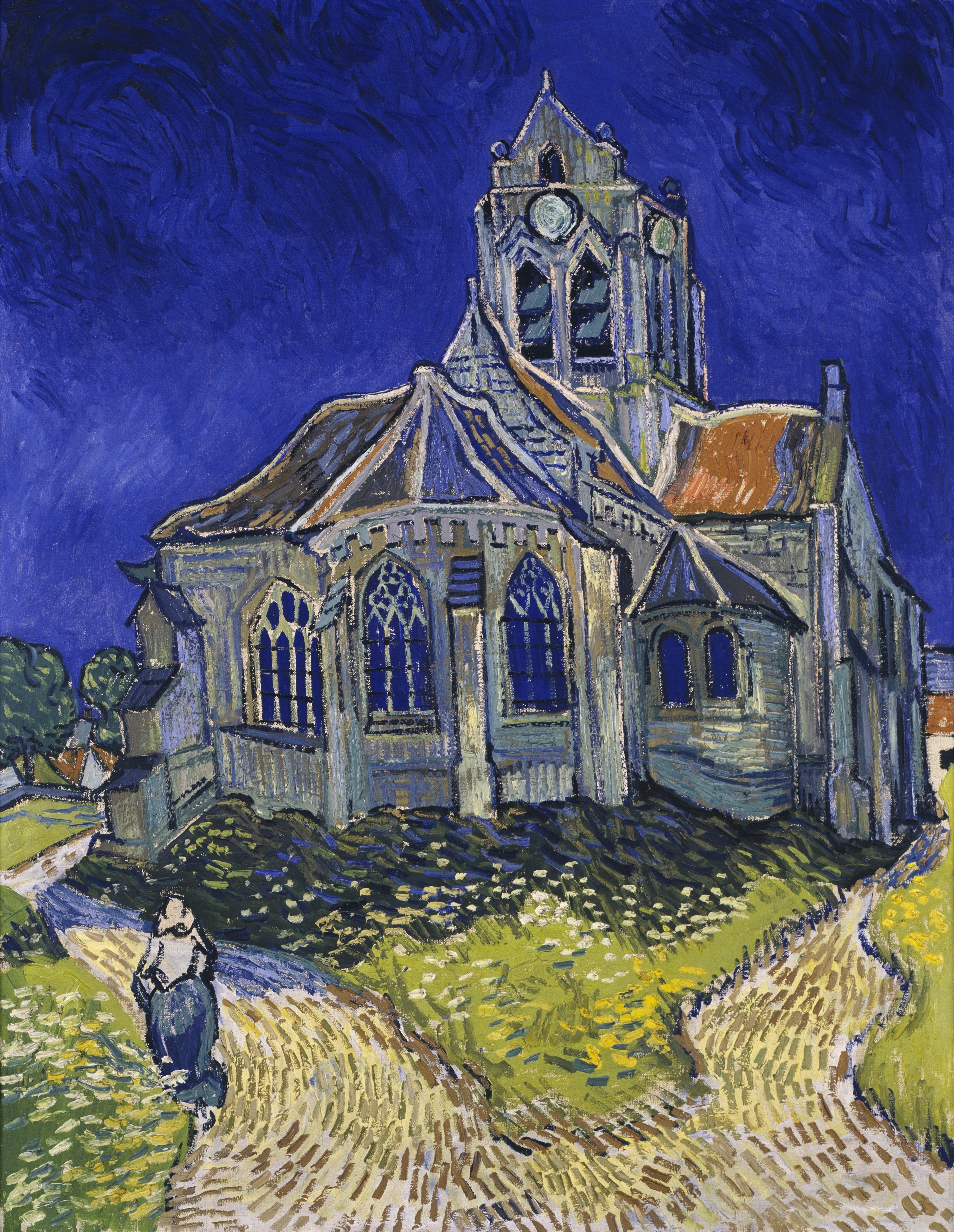 <meta property="sameAs" content="https://en.wikipedia.org/wiki/The_Church_at_Auvers" />
<span property="name">The Church at Auvers</span> by
<div property="creator" typeof="Person">
<span property="name">Vincent van Gogh</span>
</div>, depicts a church in
<div property="contentLocation" typeof="AdministrativeArea">
<span property="name">Auvers-sur-Oise</span>,
</div> but was created in
<div property="locationCreated" typeof="AdministrativeArea">
<span property="name">Saint-Rémy-de-Provence</span>.
</div>
</div>
<meta property="sameAs" content="https://en.wikipedia.org/wiki/The_Church_at_Auvers" />
<span property="name">The Church at Auvers</span> by
<div property="creator" typeof="Person">
<span property="name">Vincent van Gogh</span>
</div>, depicts a church in
<div property="contentLocation" typeof="AdministrativeArea">
<span property="name">Auvers-sur-Oise</span>,
</div> but was created in
<div property="locationCreated" typeof="AdministrativeArea">
<span property="name">Saint-Rémy-de-Provence</span>.
</div>
</div>
```
Tags
Annotators
URL
-
-
www.wikiart.org www.wikiart.org
Tags
Annotators
URL
-
-
www.wikiart.org www.wikiart.org
Tags
Annotators
URL
-
-
www.wikiart.org www.wikiart.org
Tags
Annotators
URL
-
-
mediation.centrepompidou.fr mediation.centrepompidou.fr
-
collections.louvre.fr collections.louvre.fr
-
mediation.centrepompidou.fr mediation.centrepompidou.fr
-
www.guggenheim.org www.guggenheim.org
-
-
www.guggenheim.org www.guggenheim.org
-
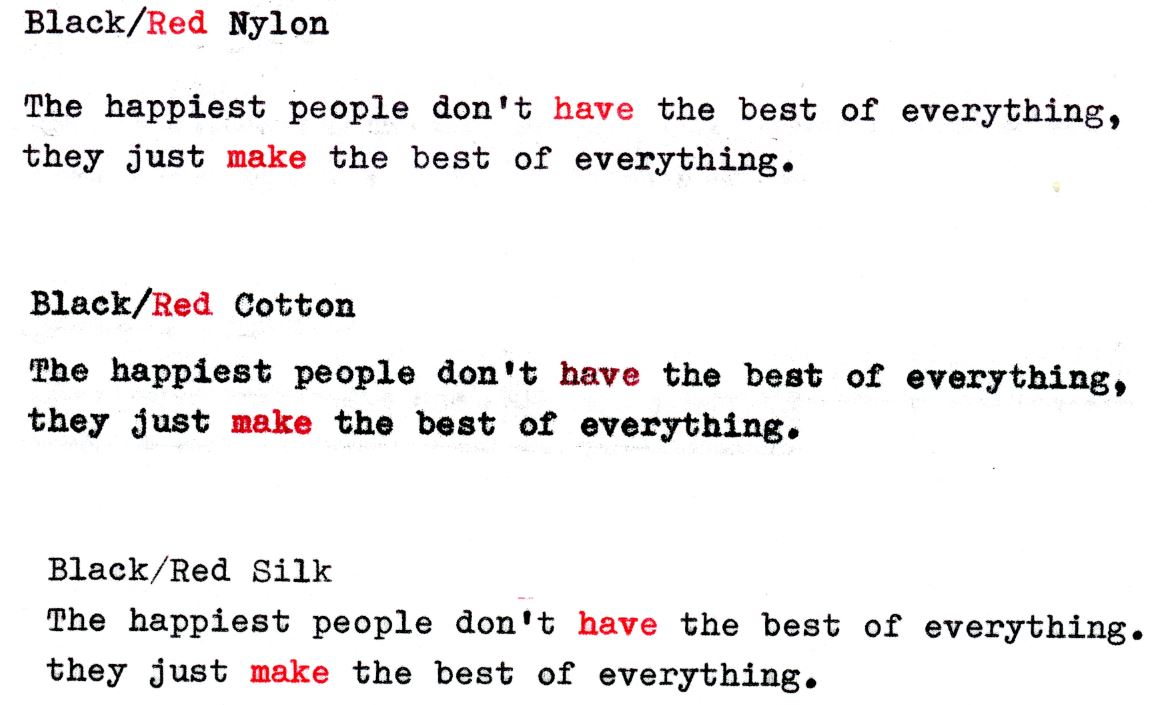


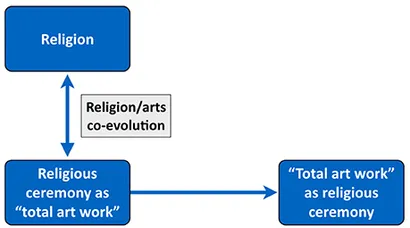

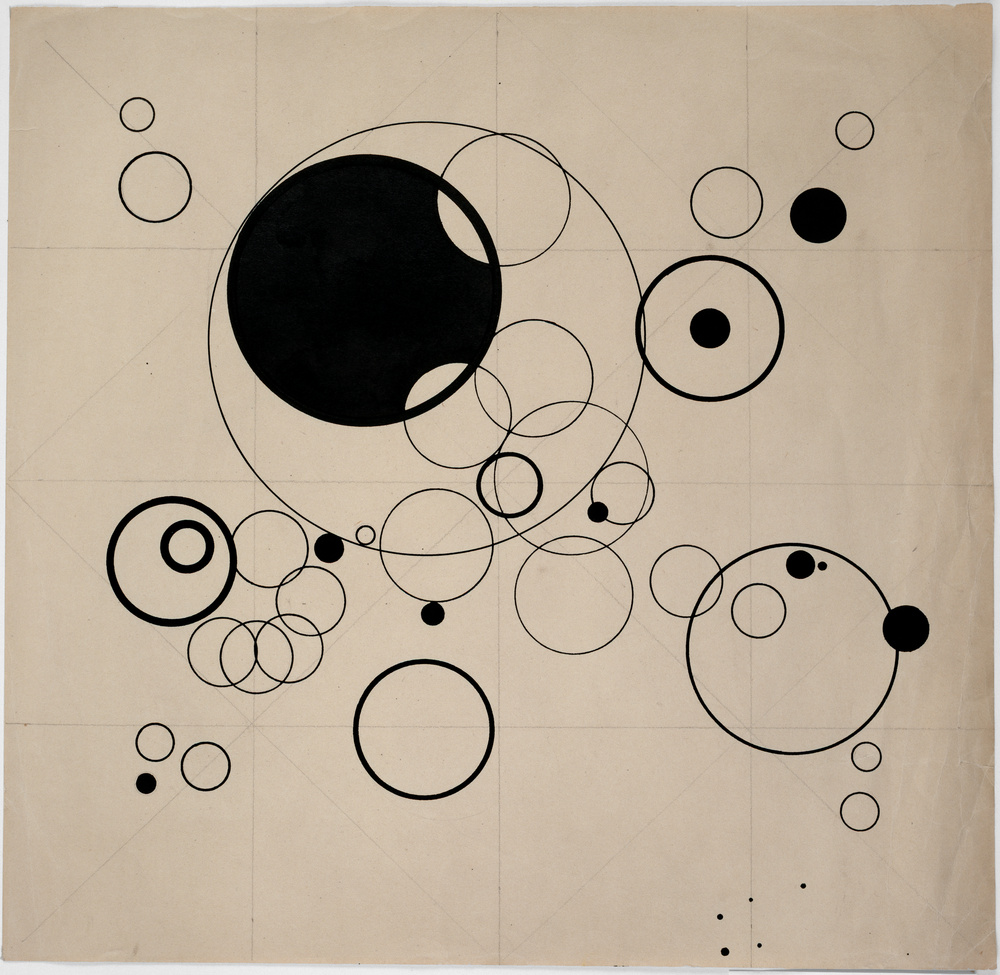
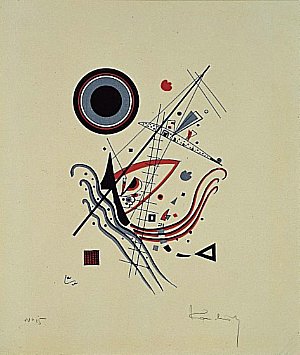


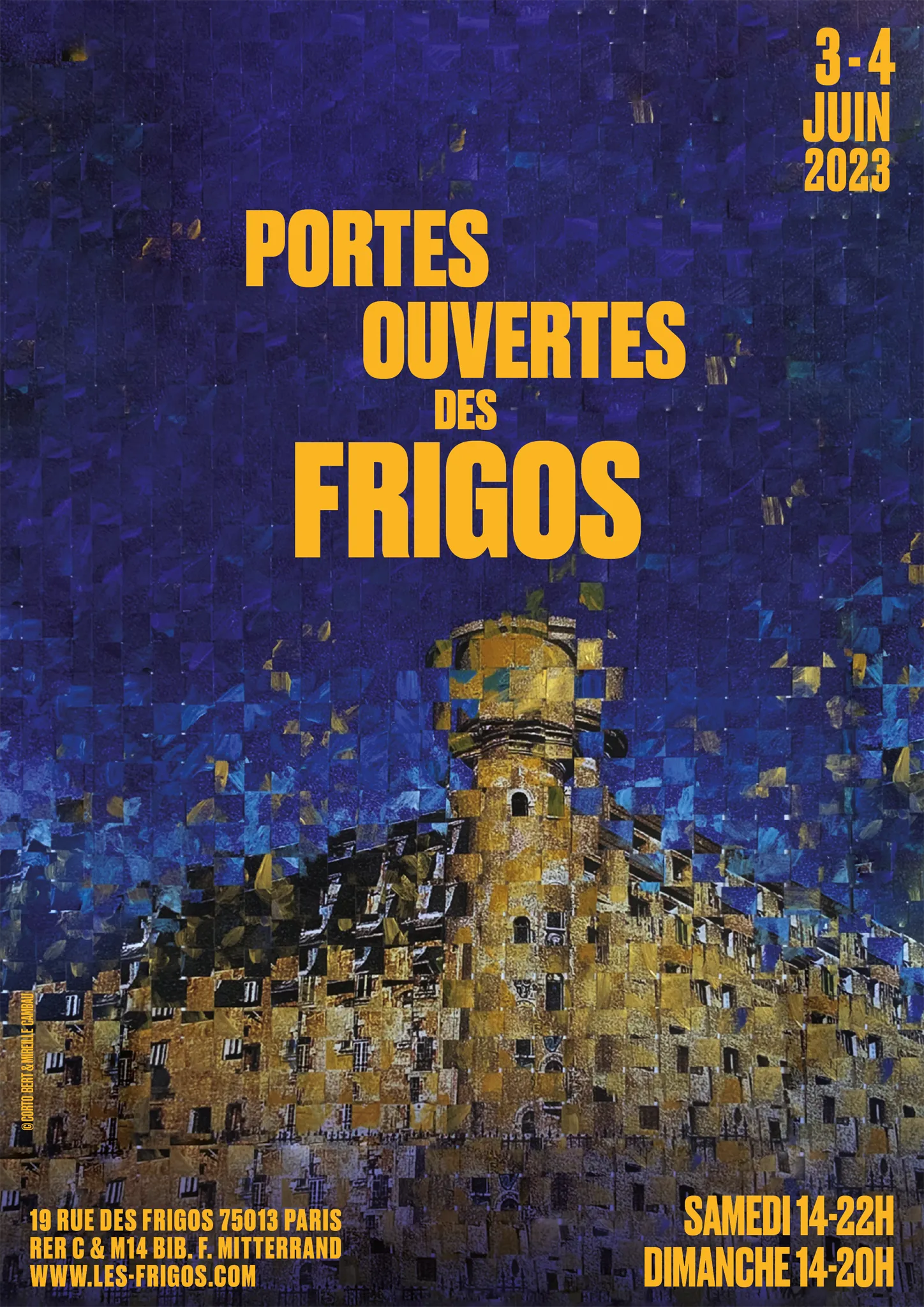
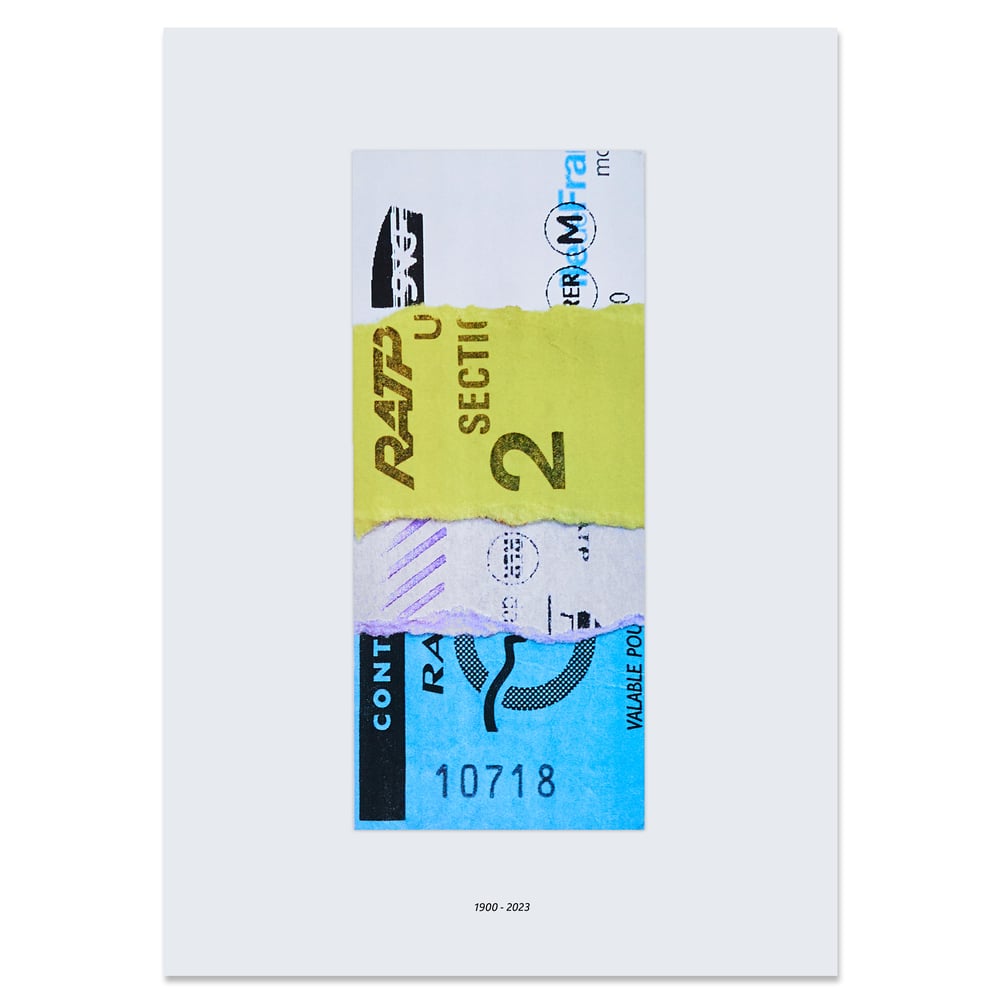

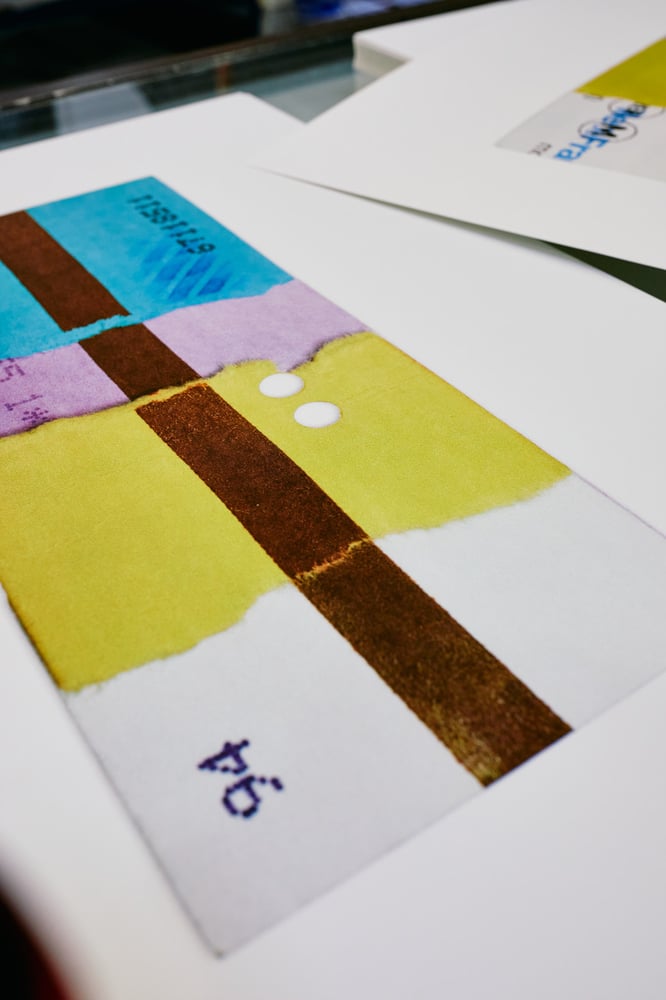

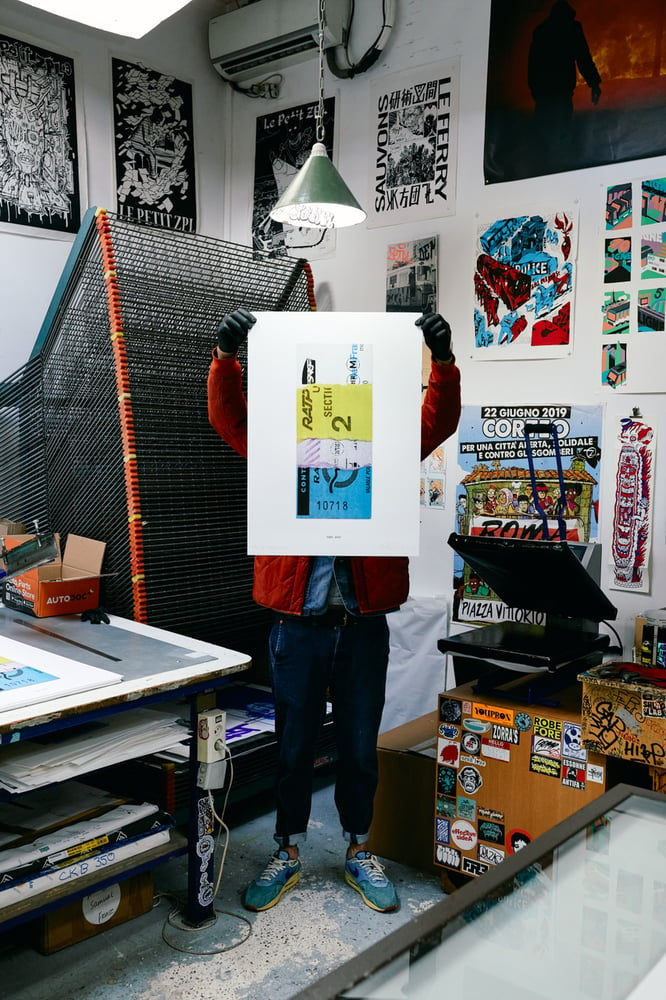
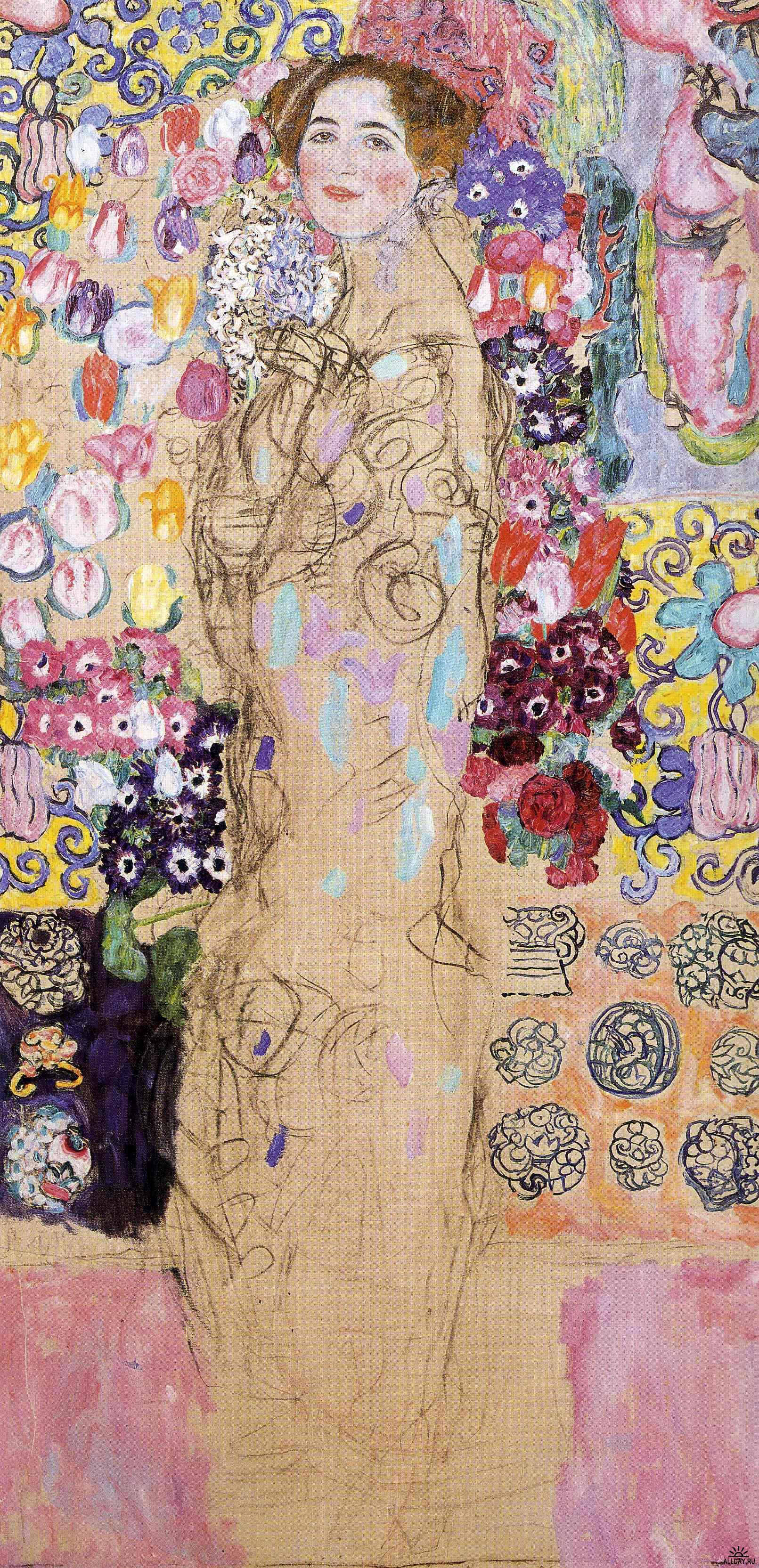
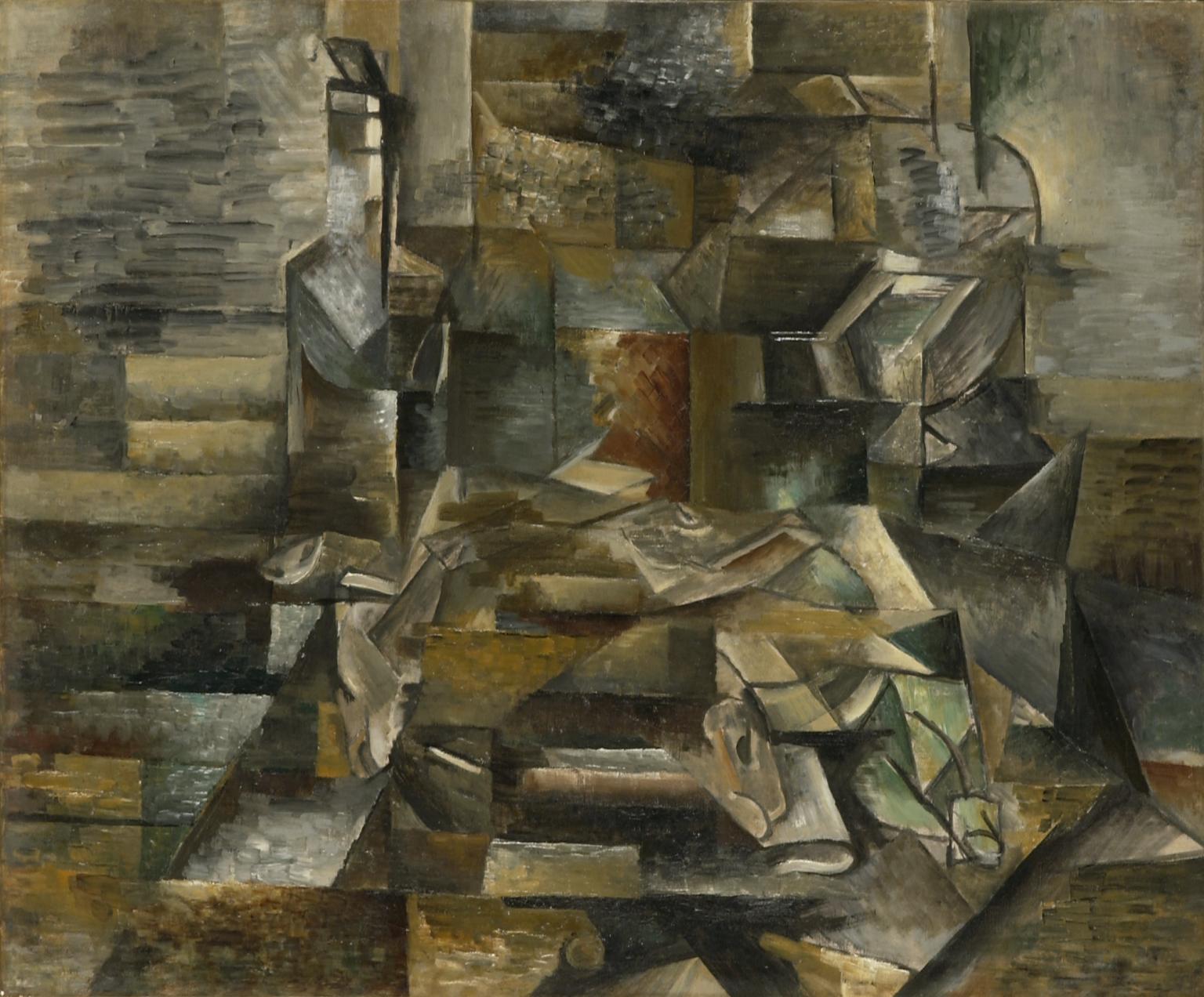
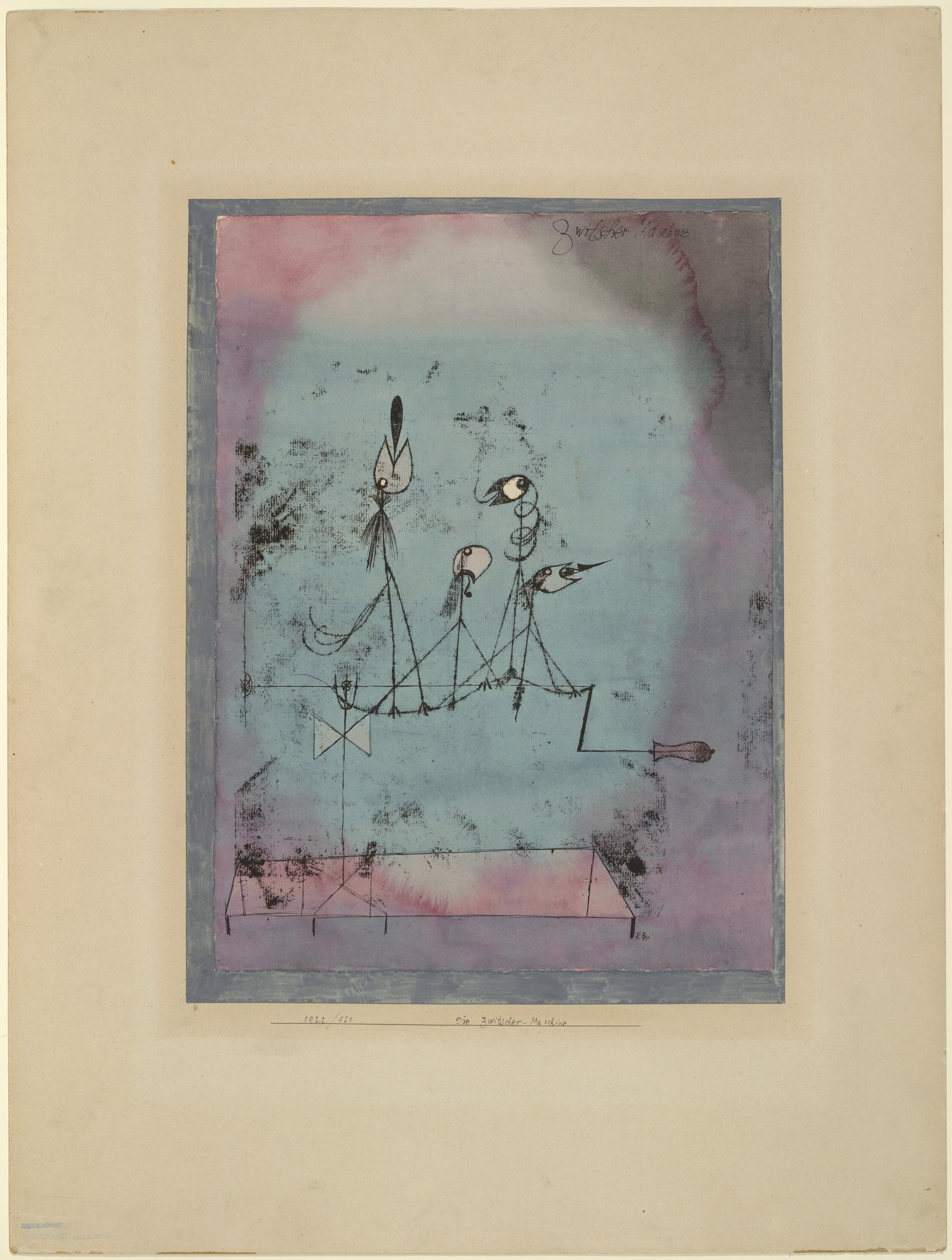

.jpg)
.jpg)
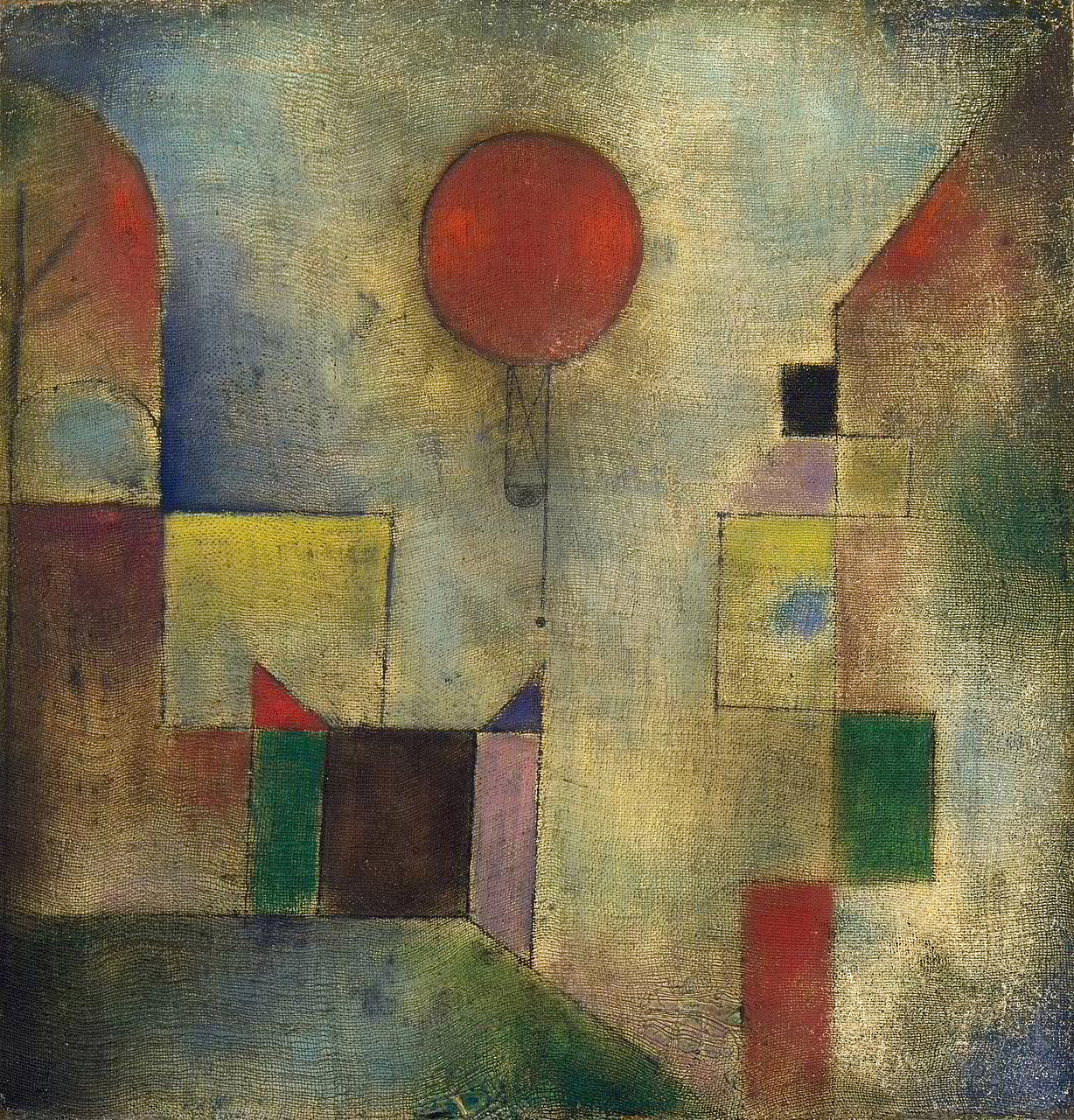
.jpg)



